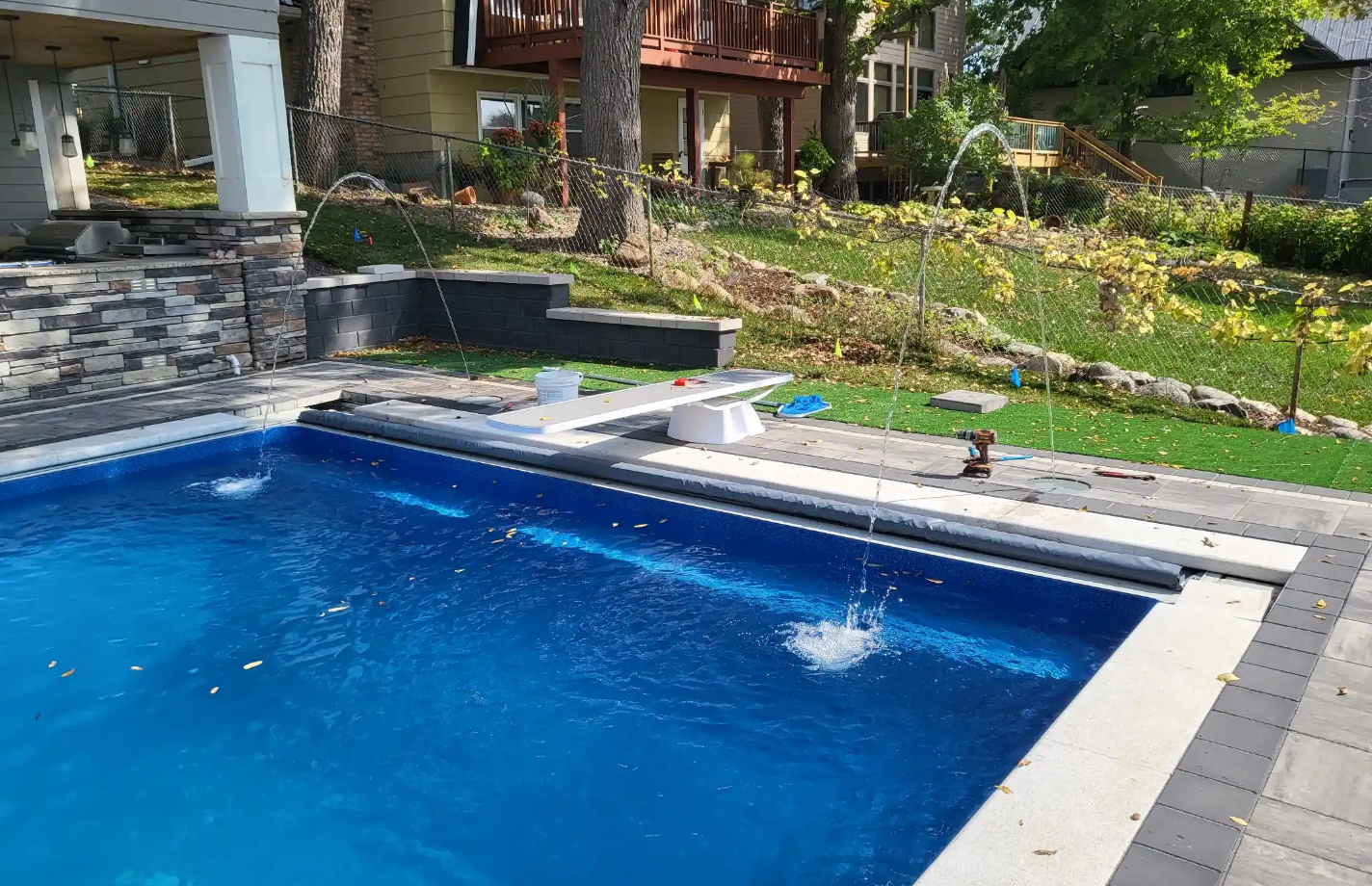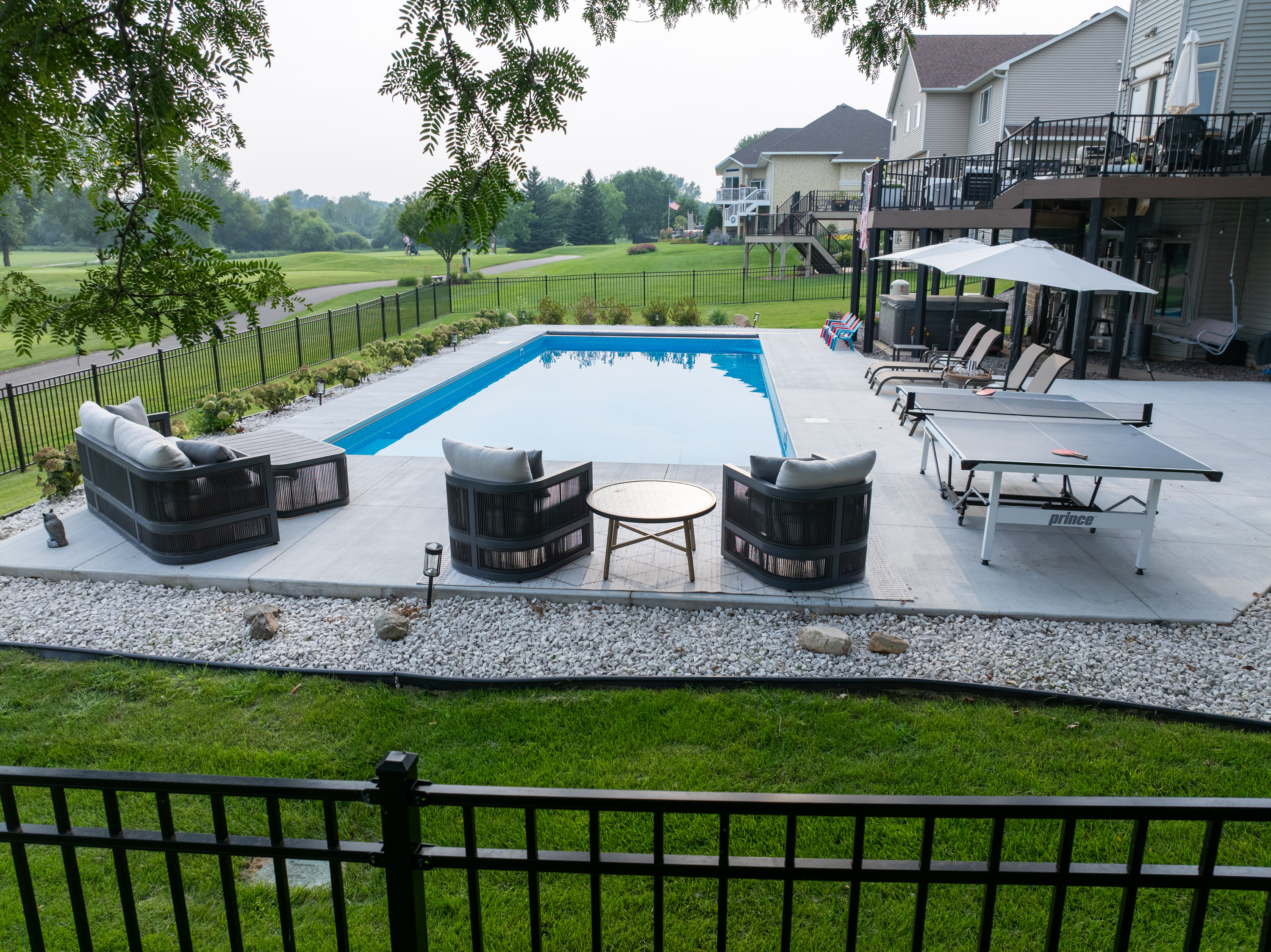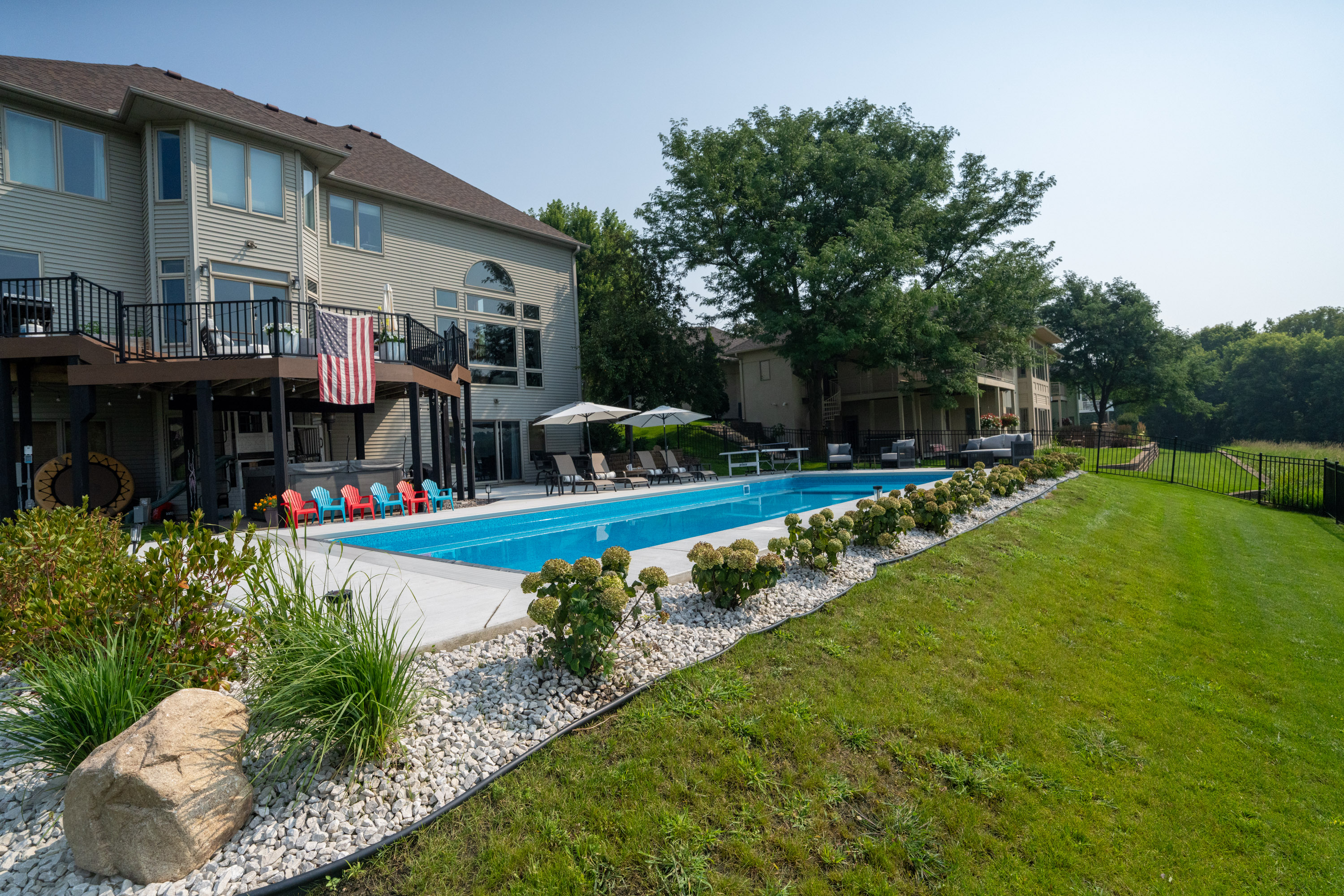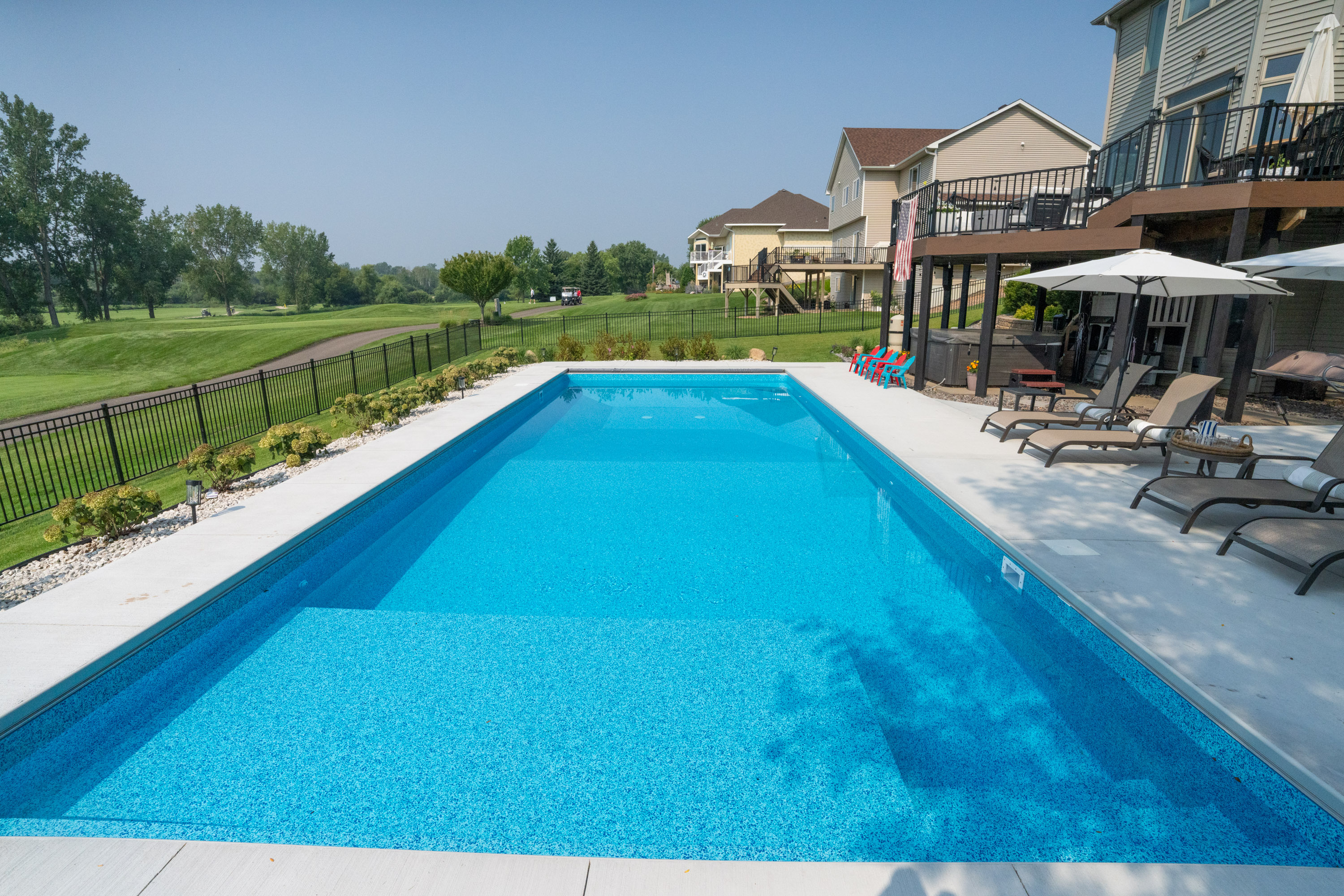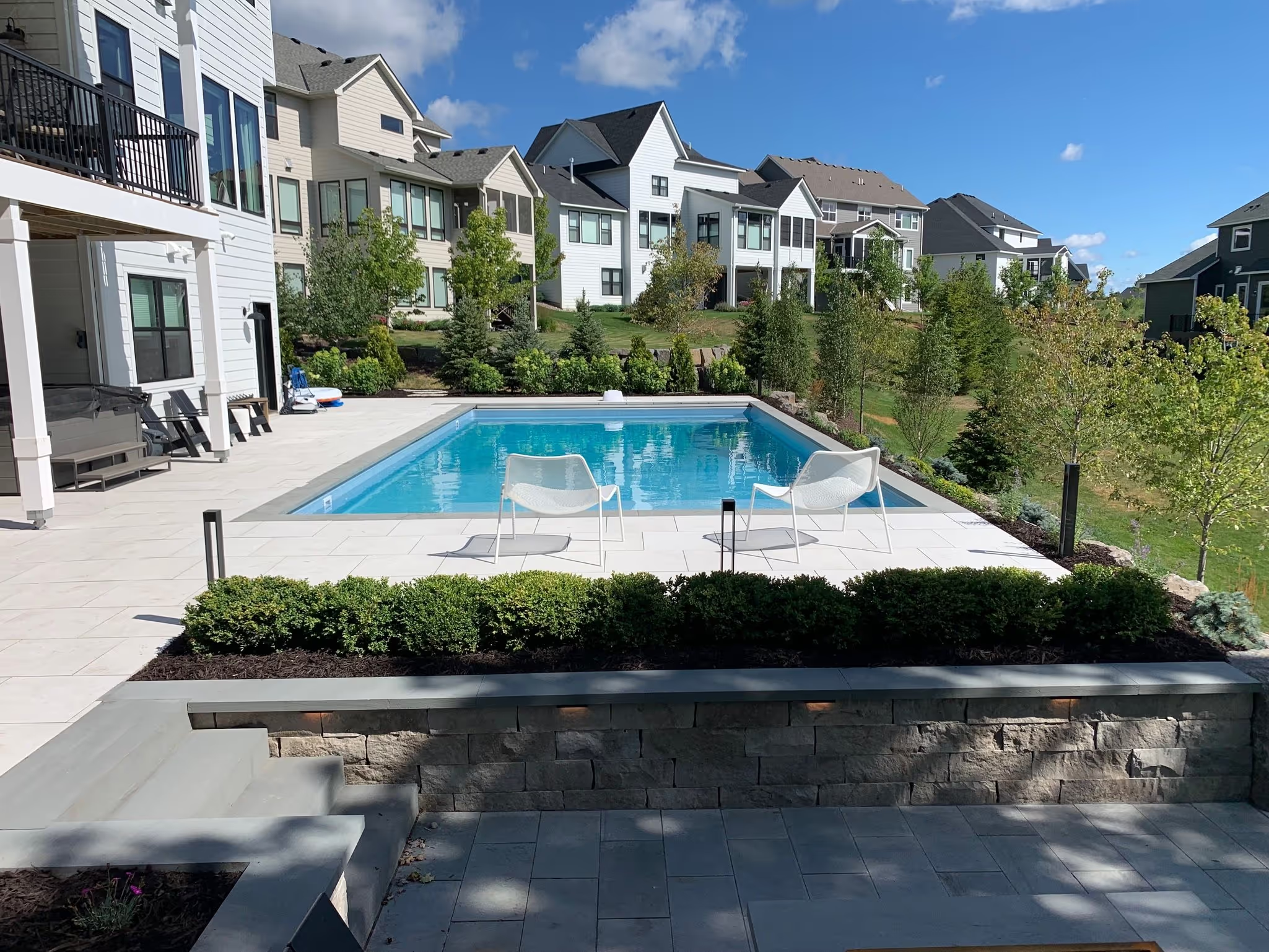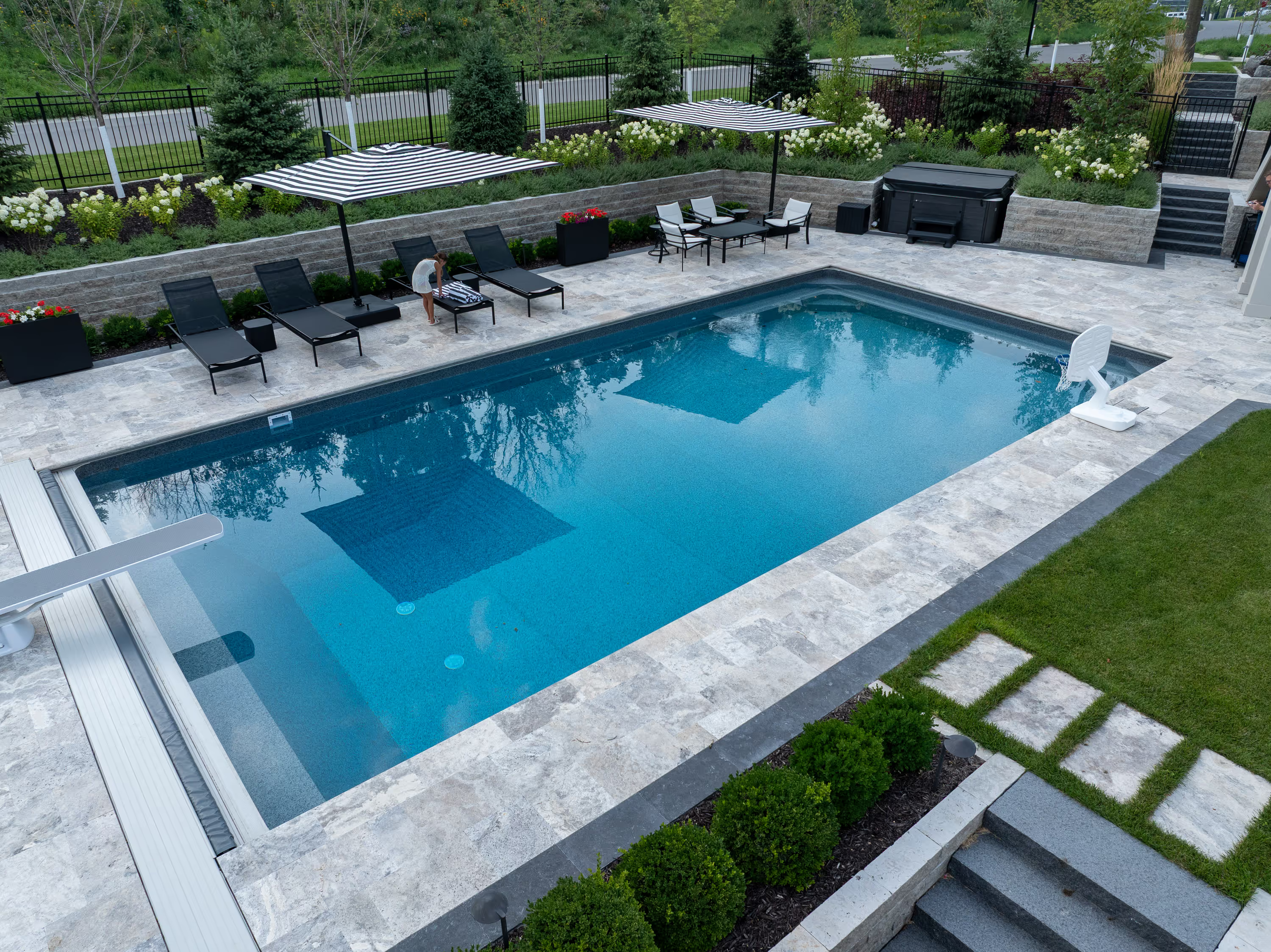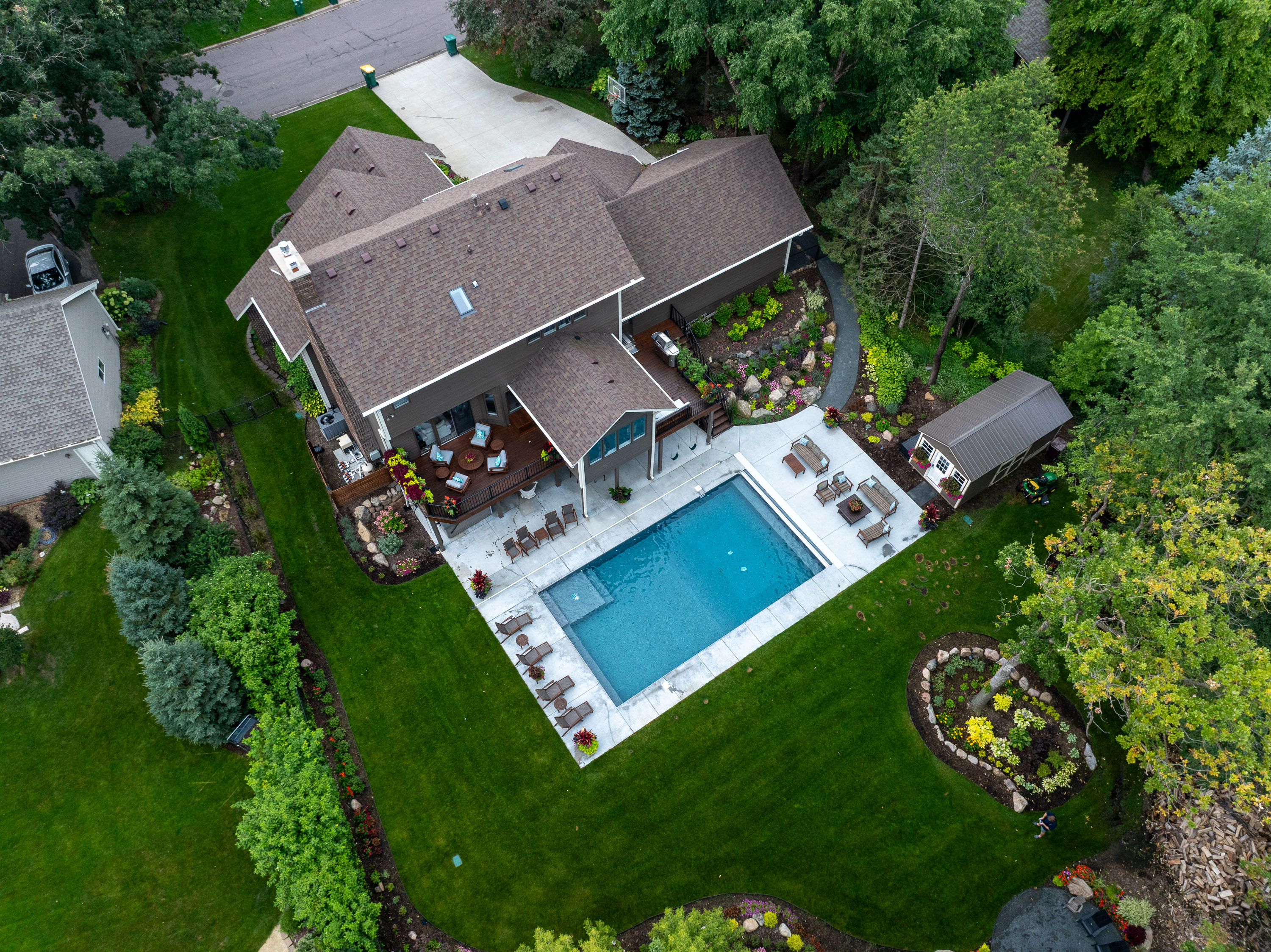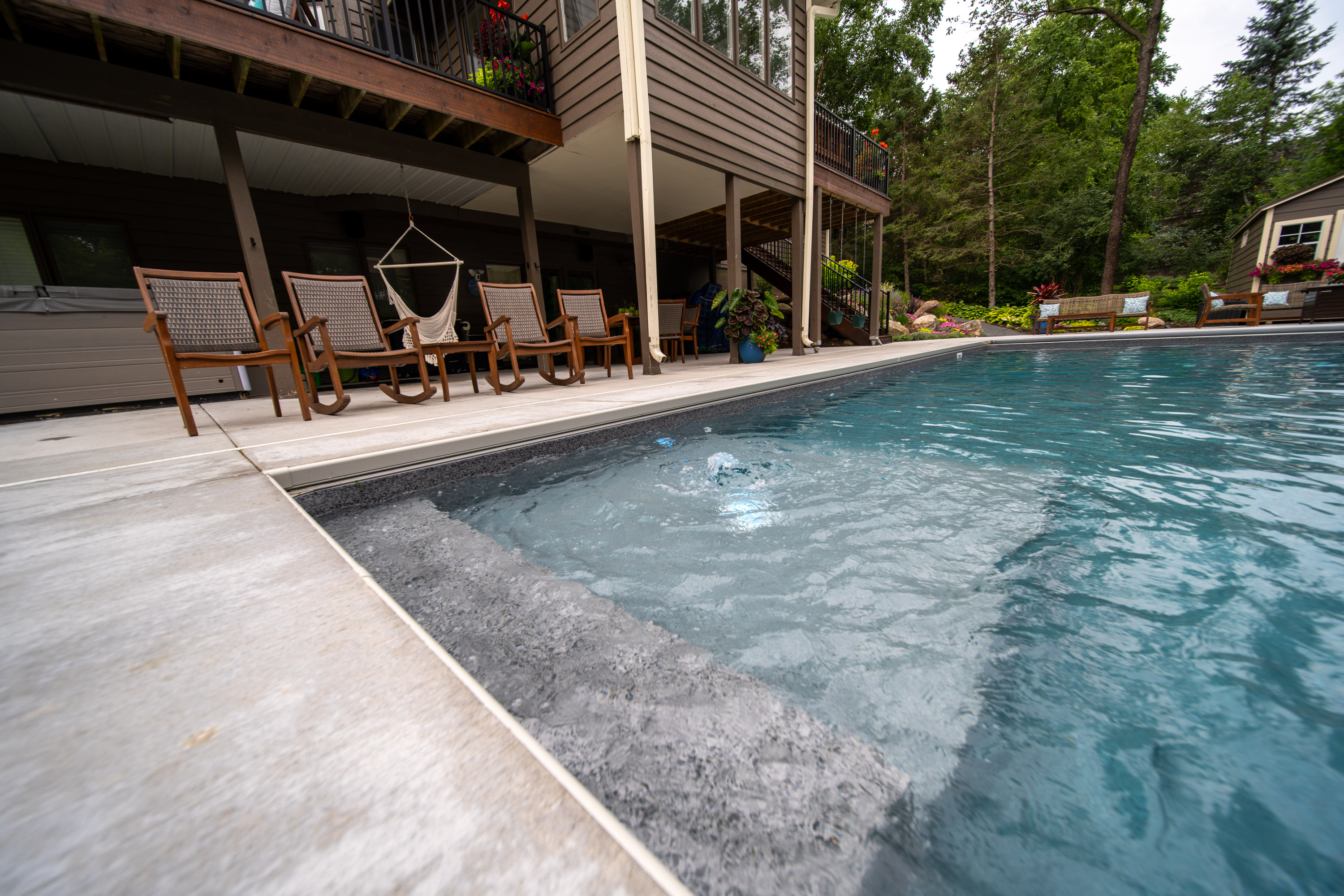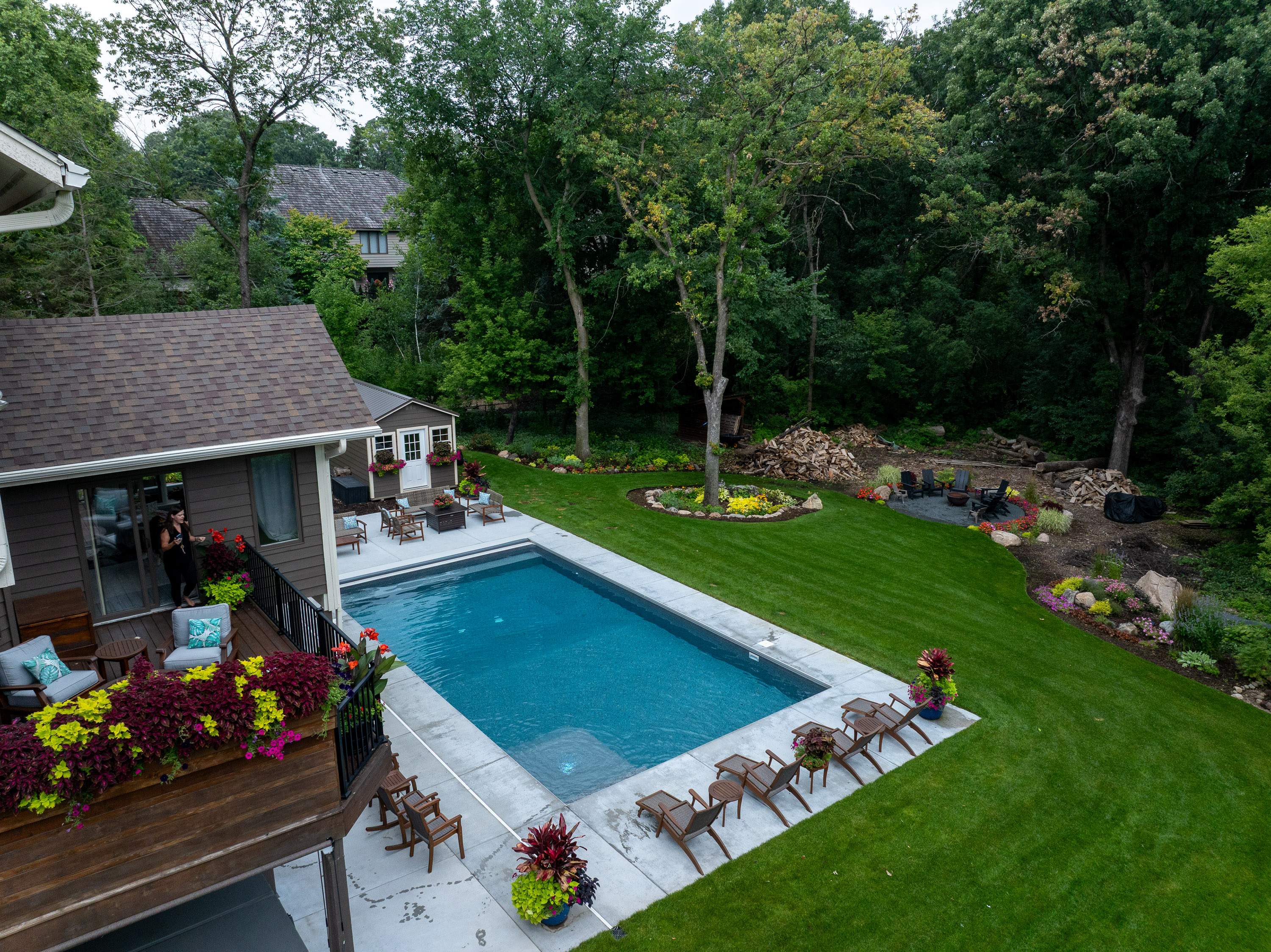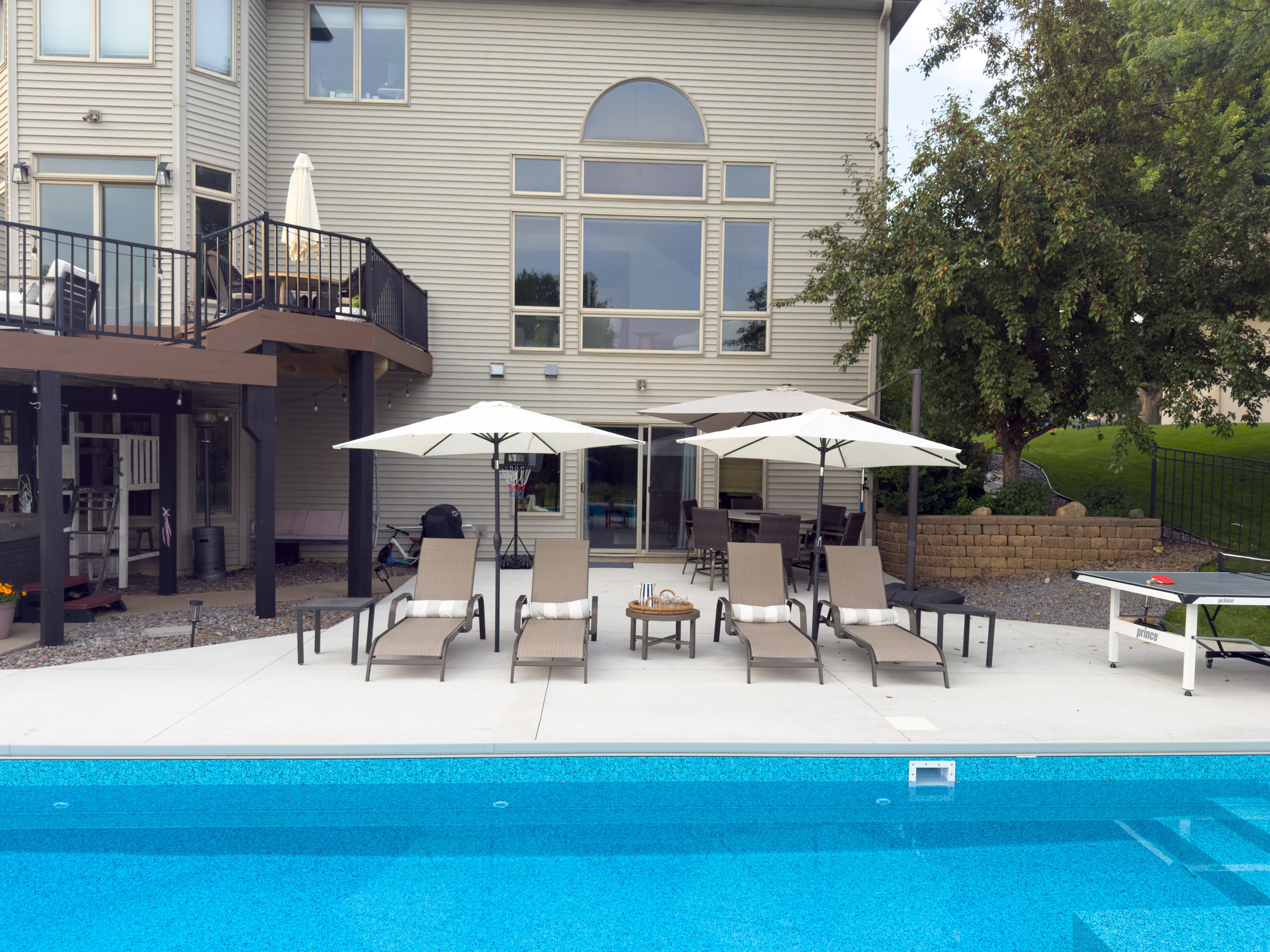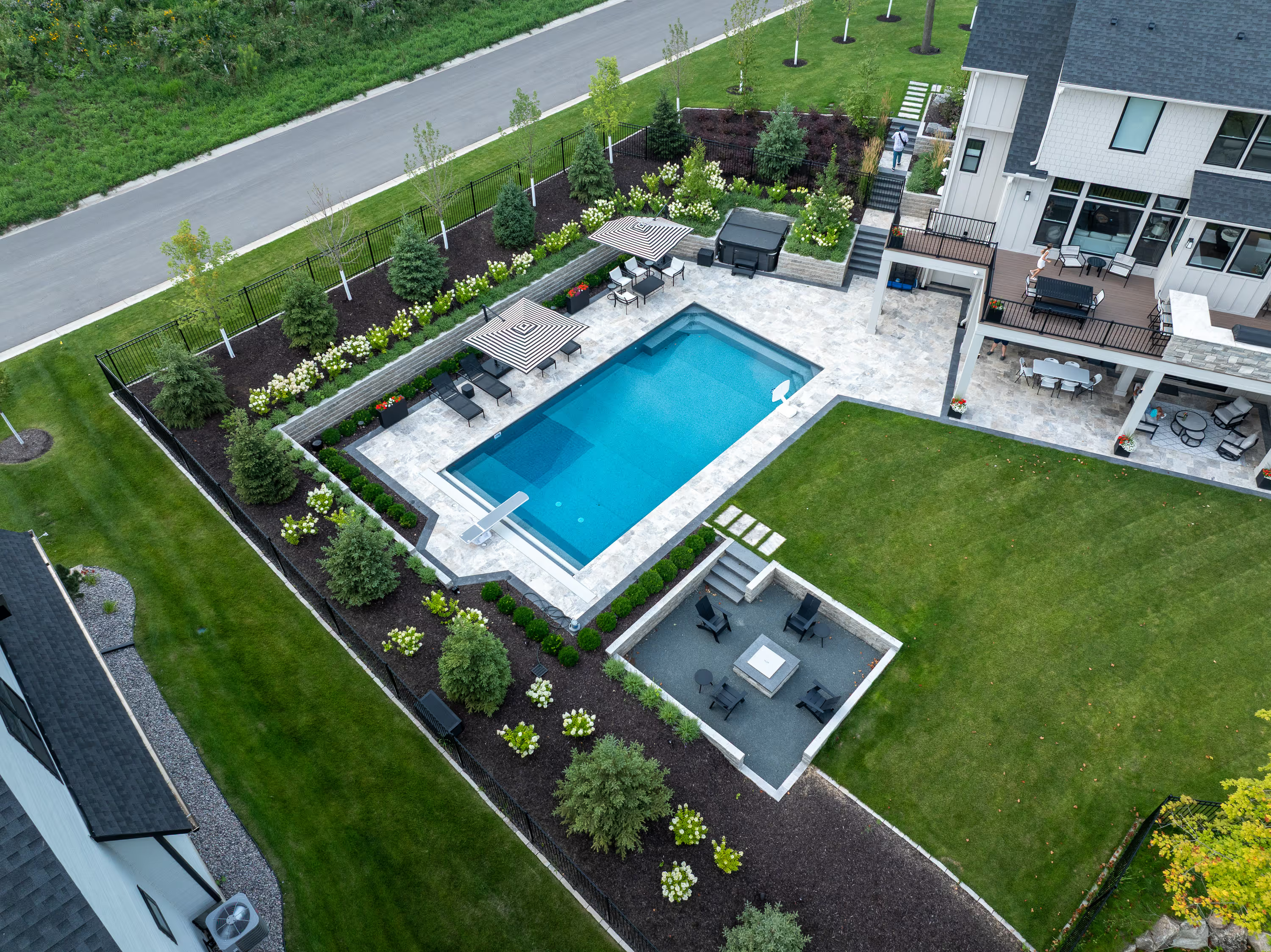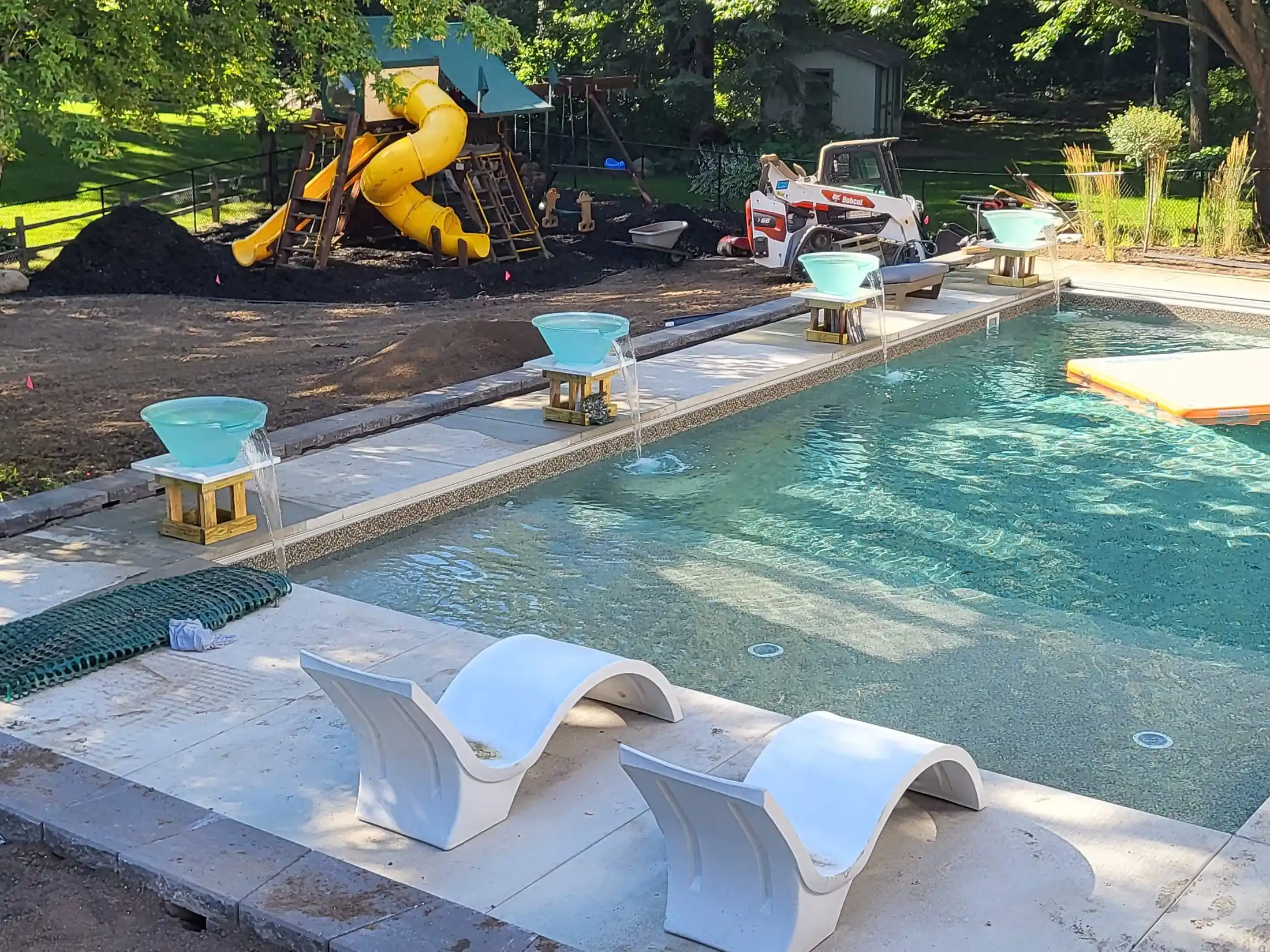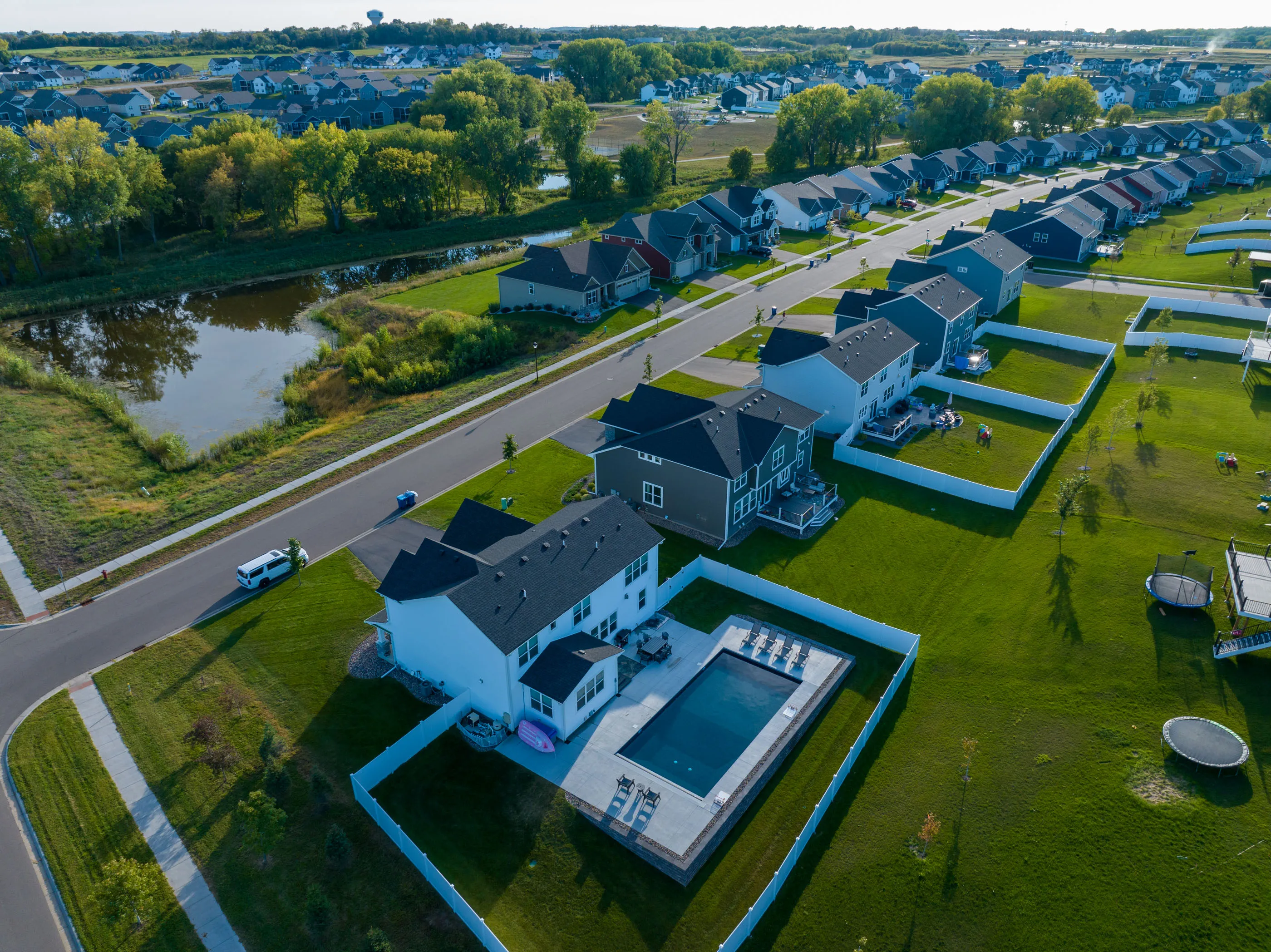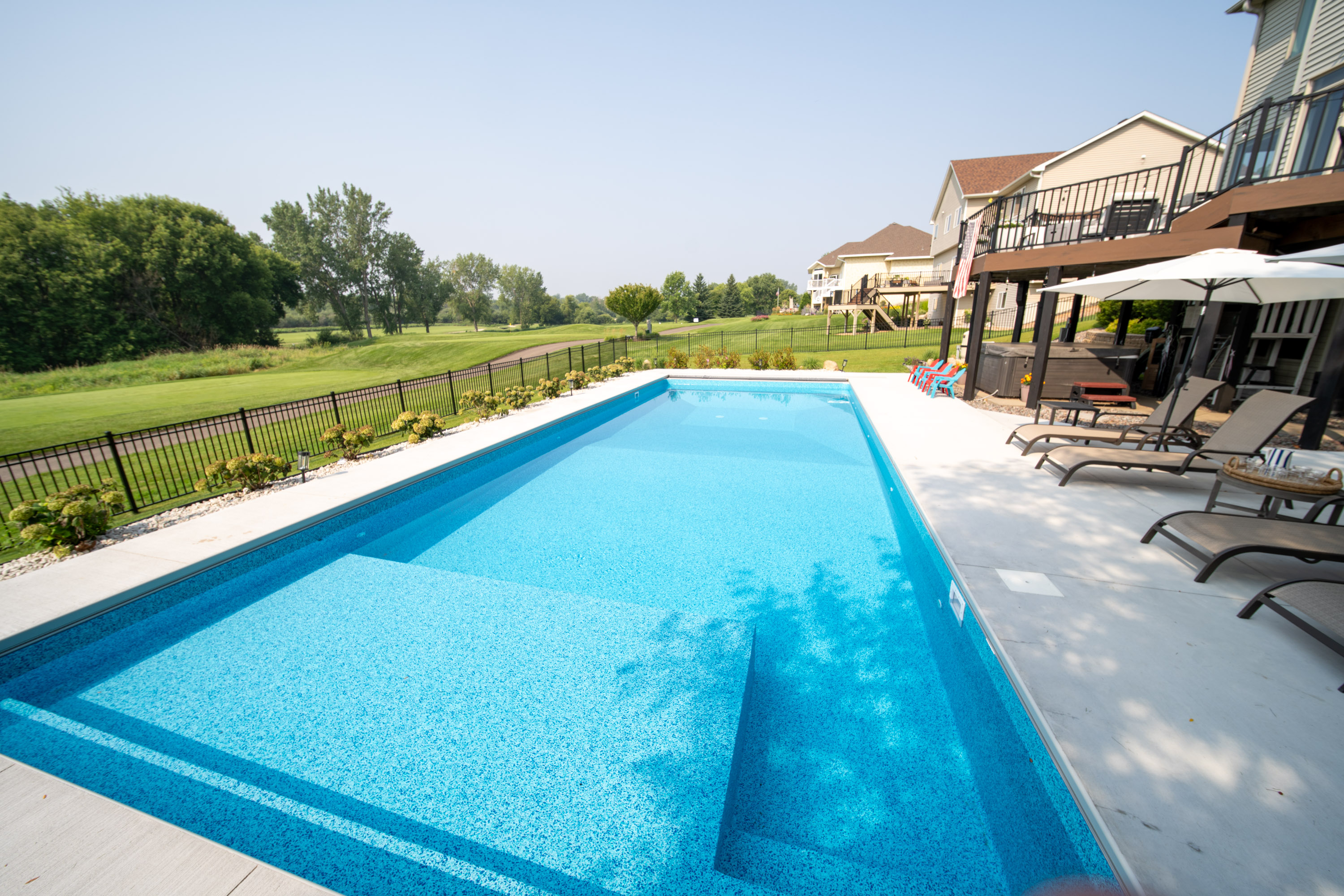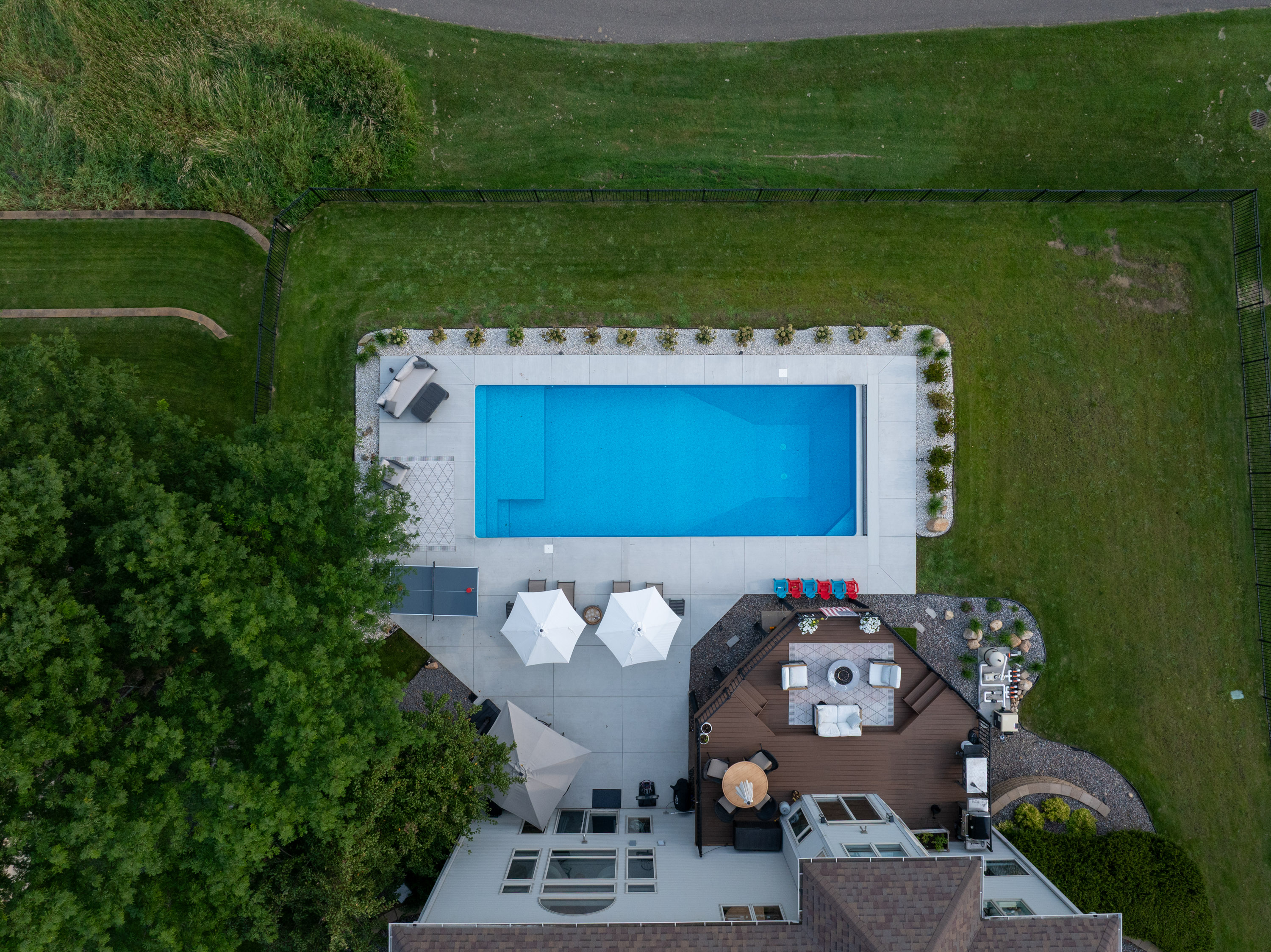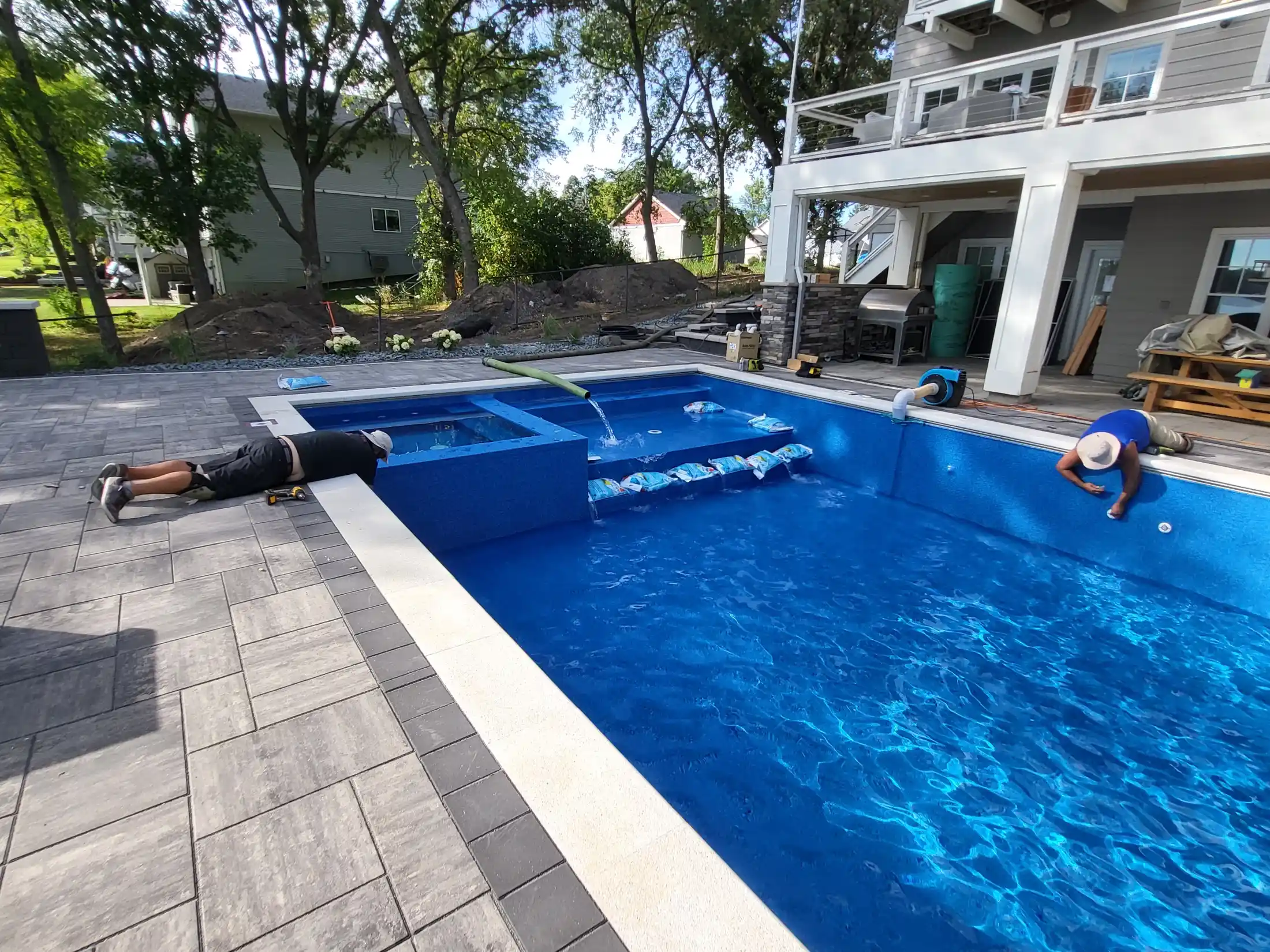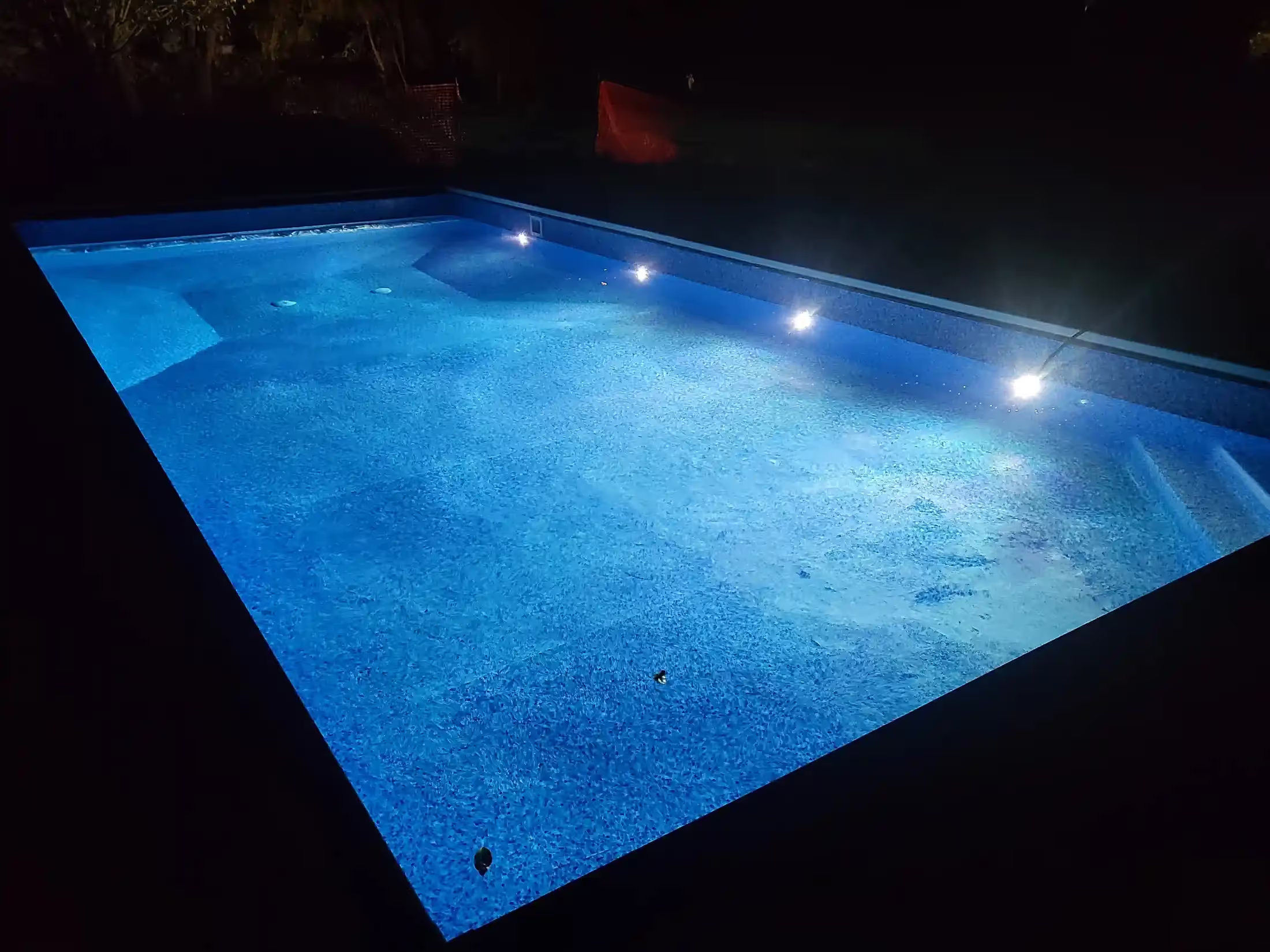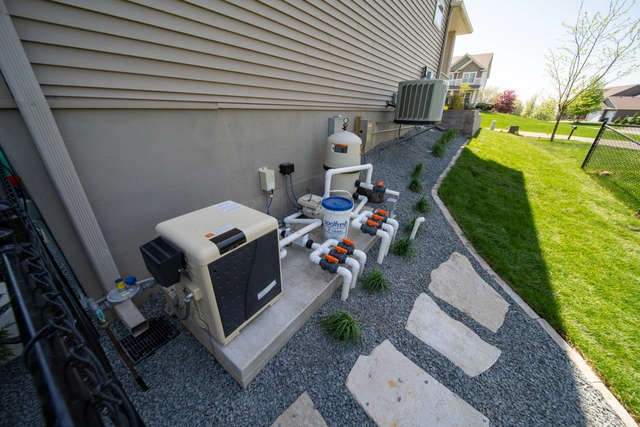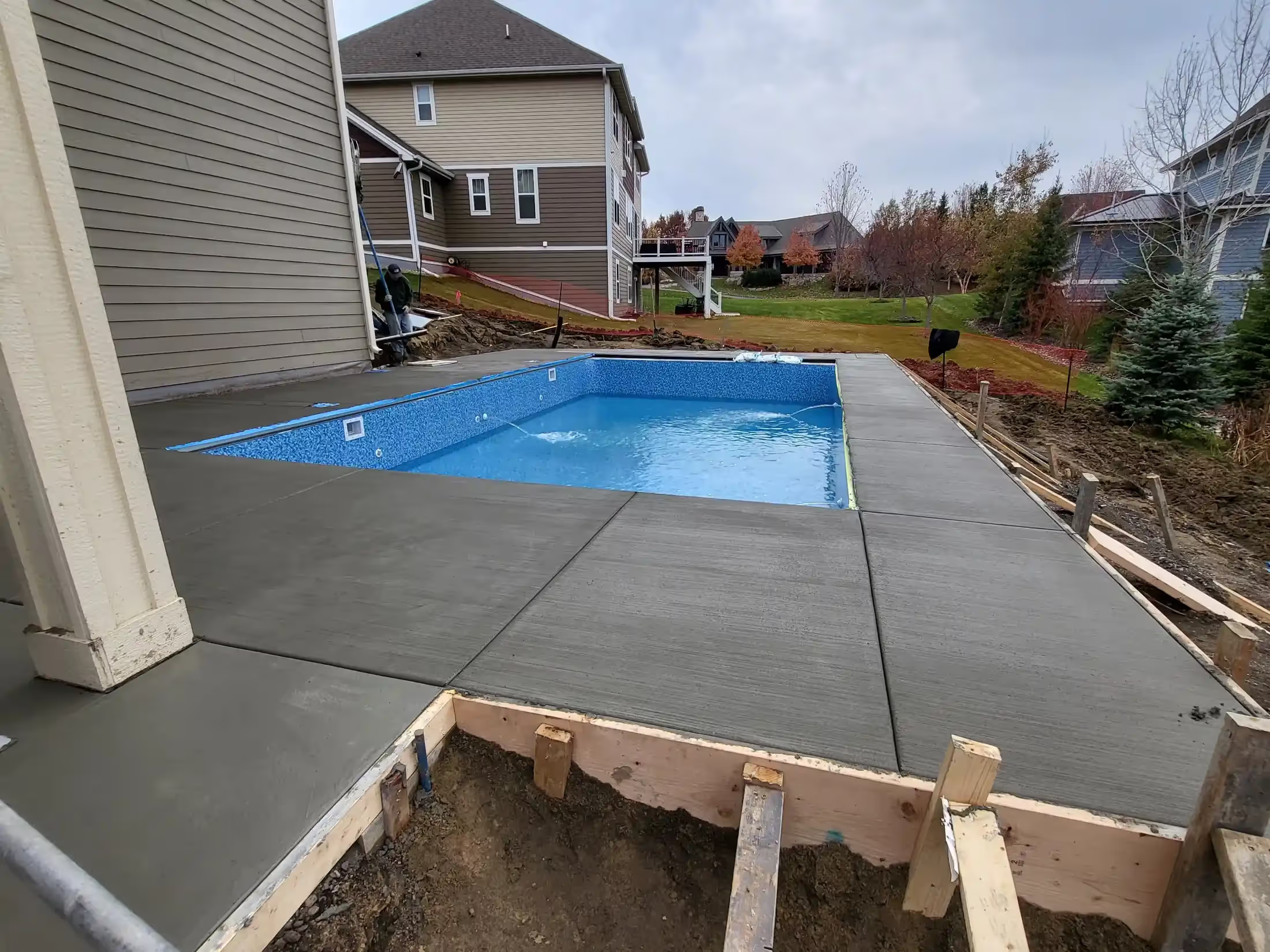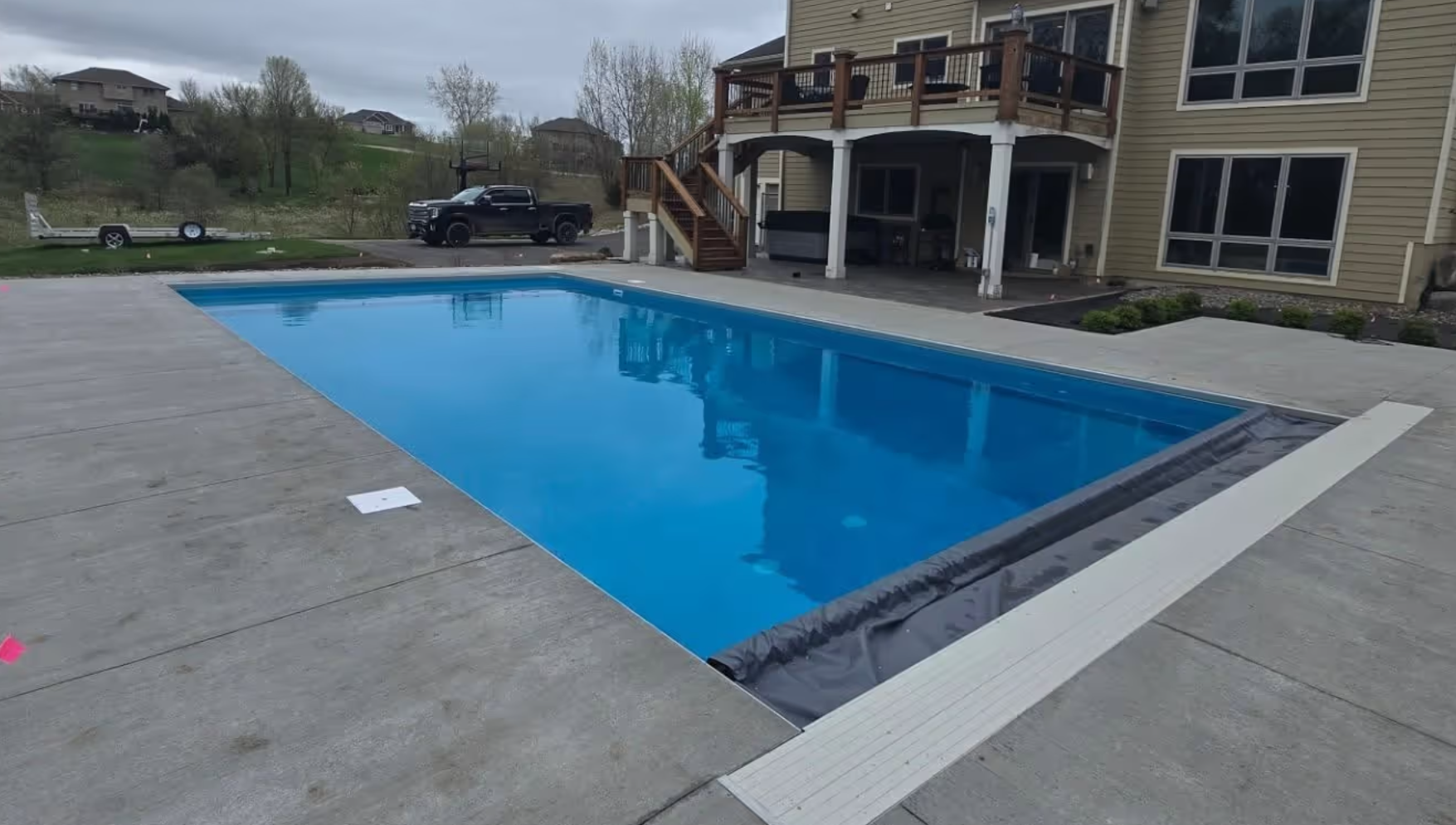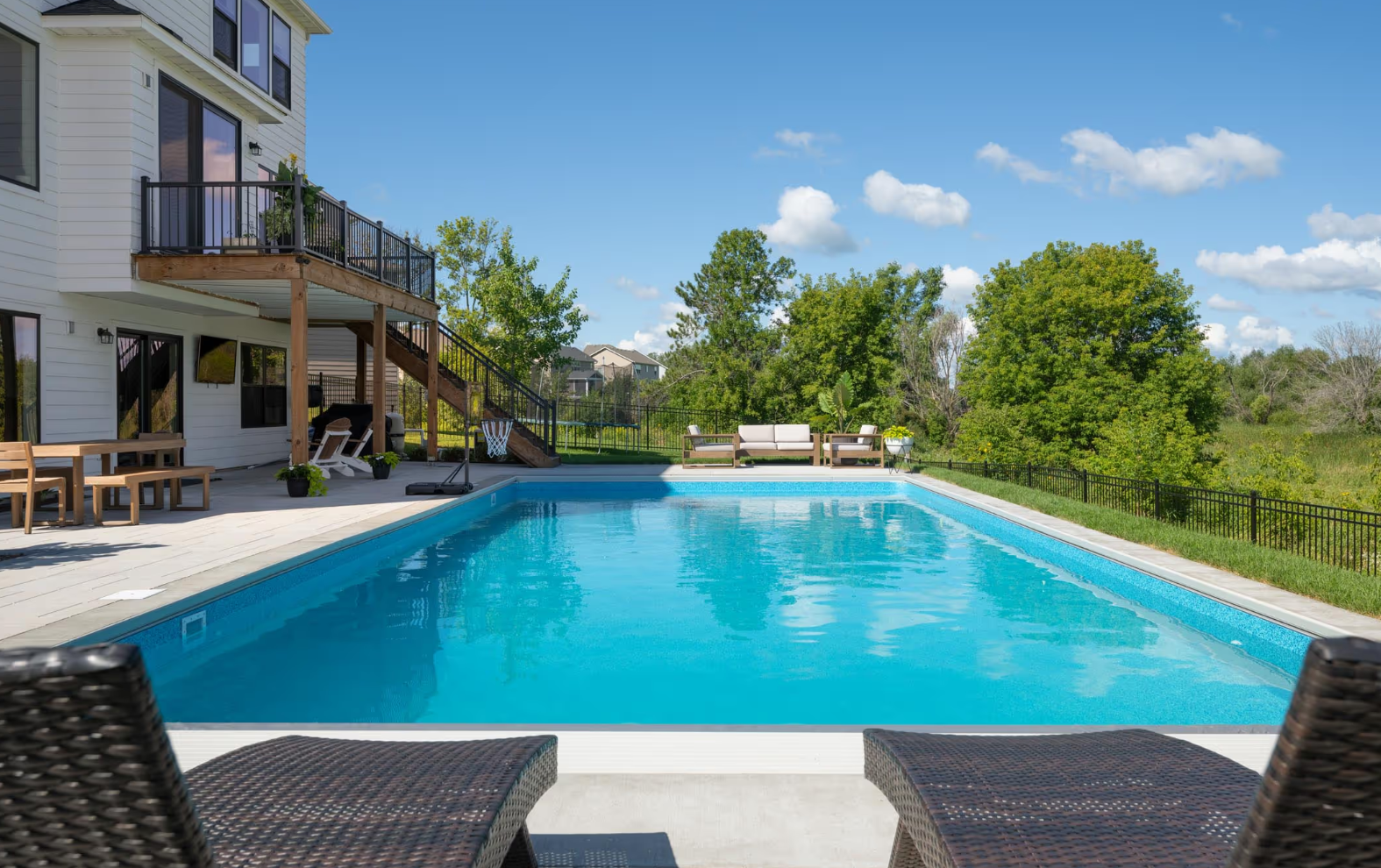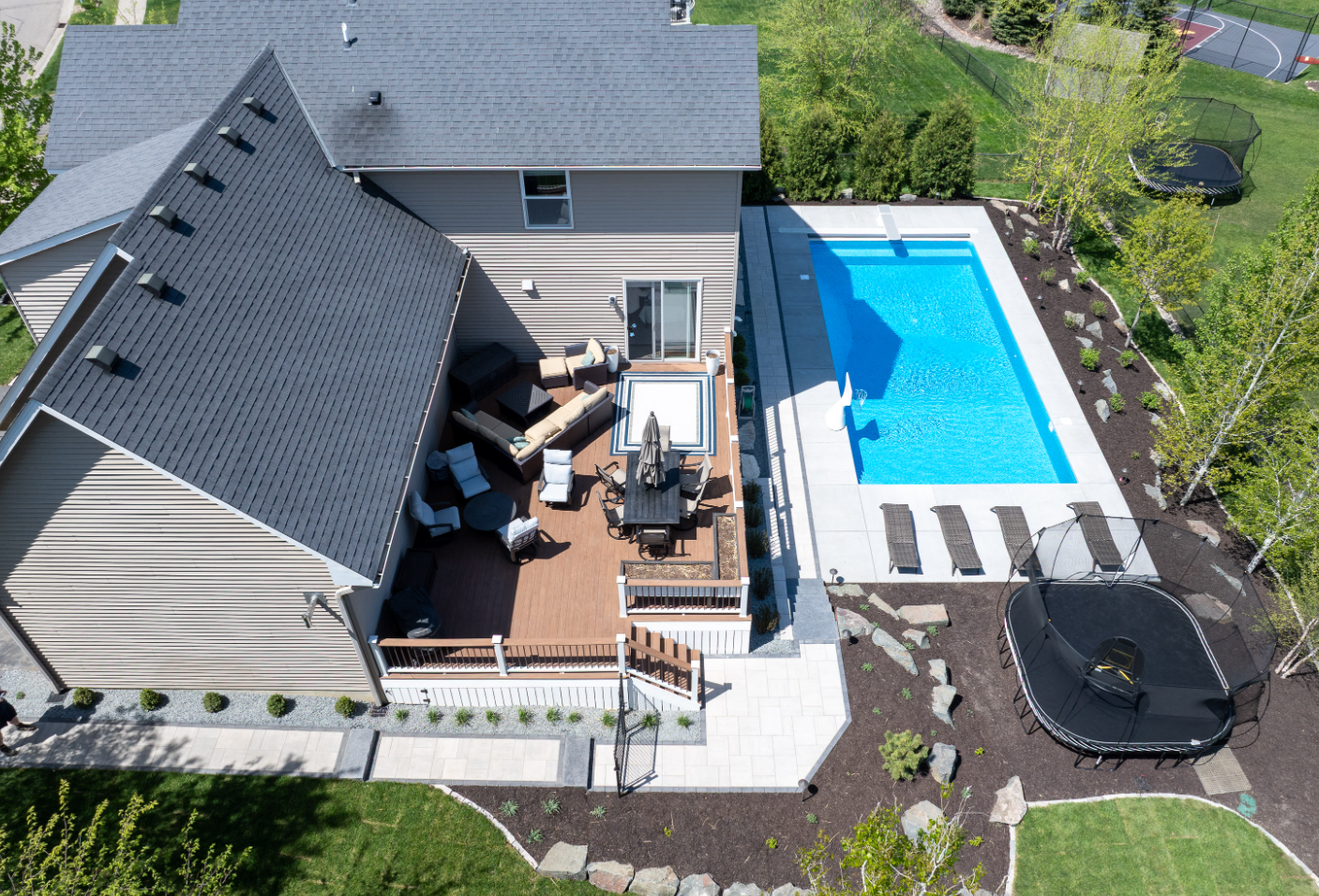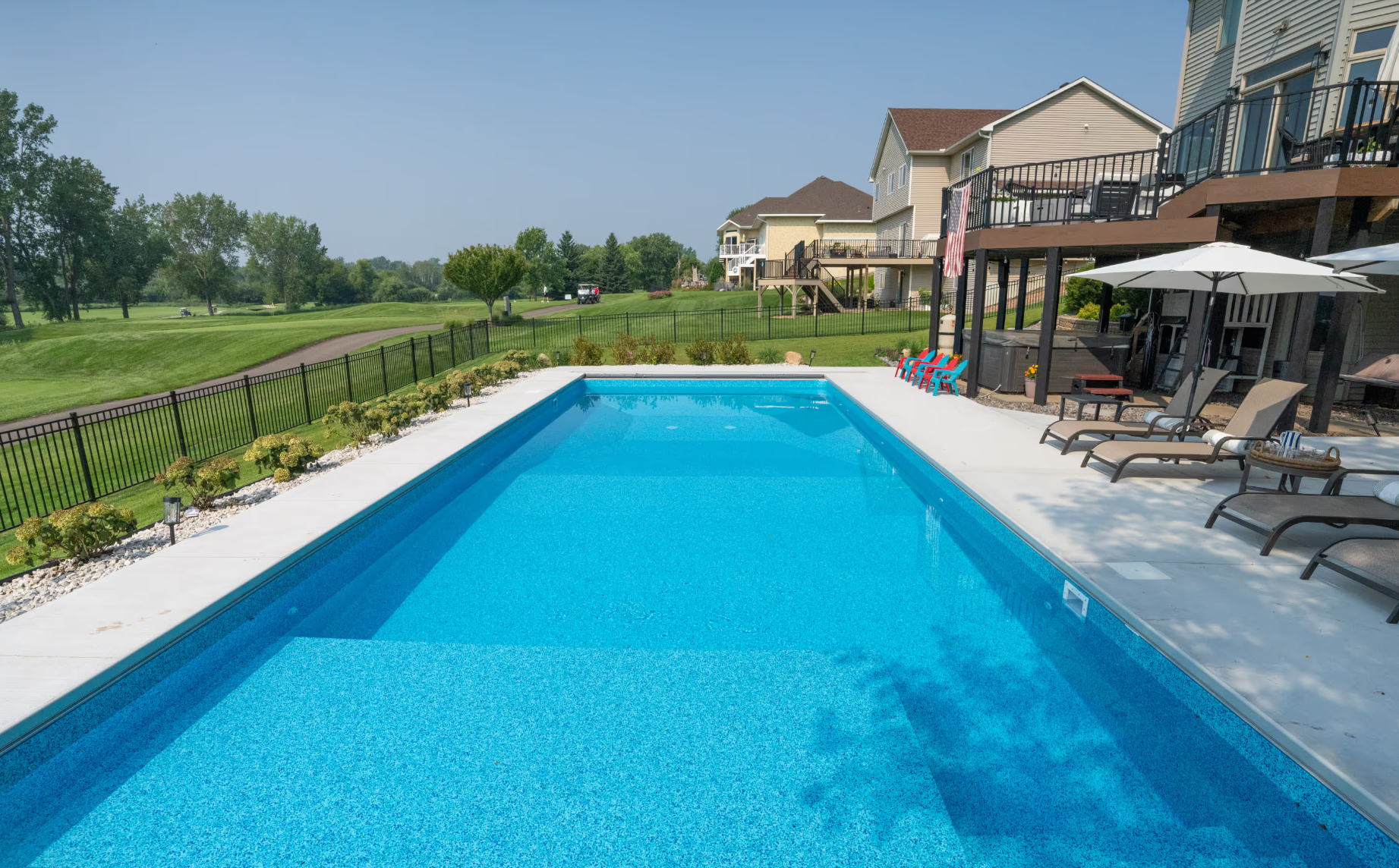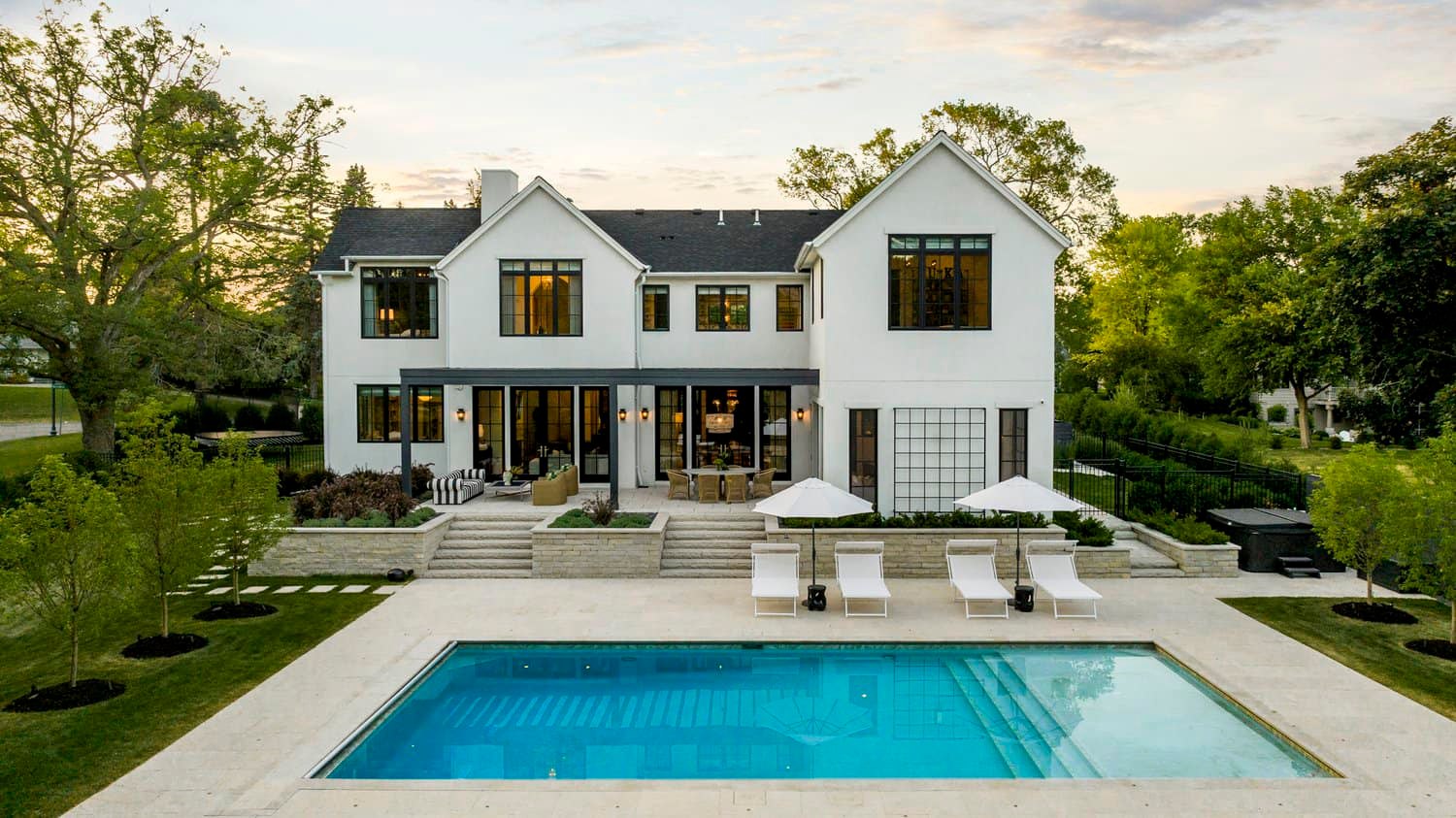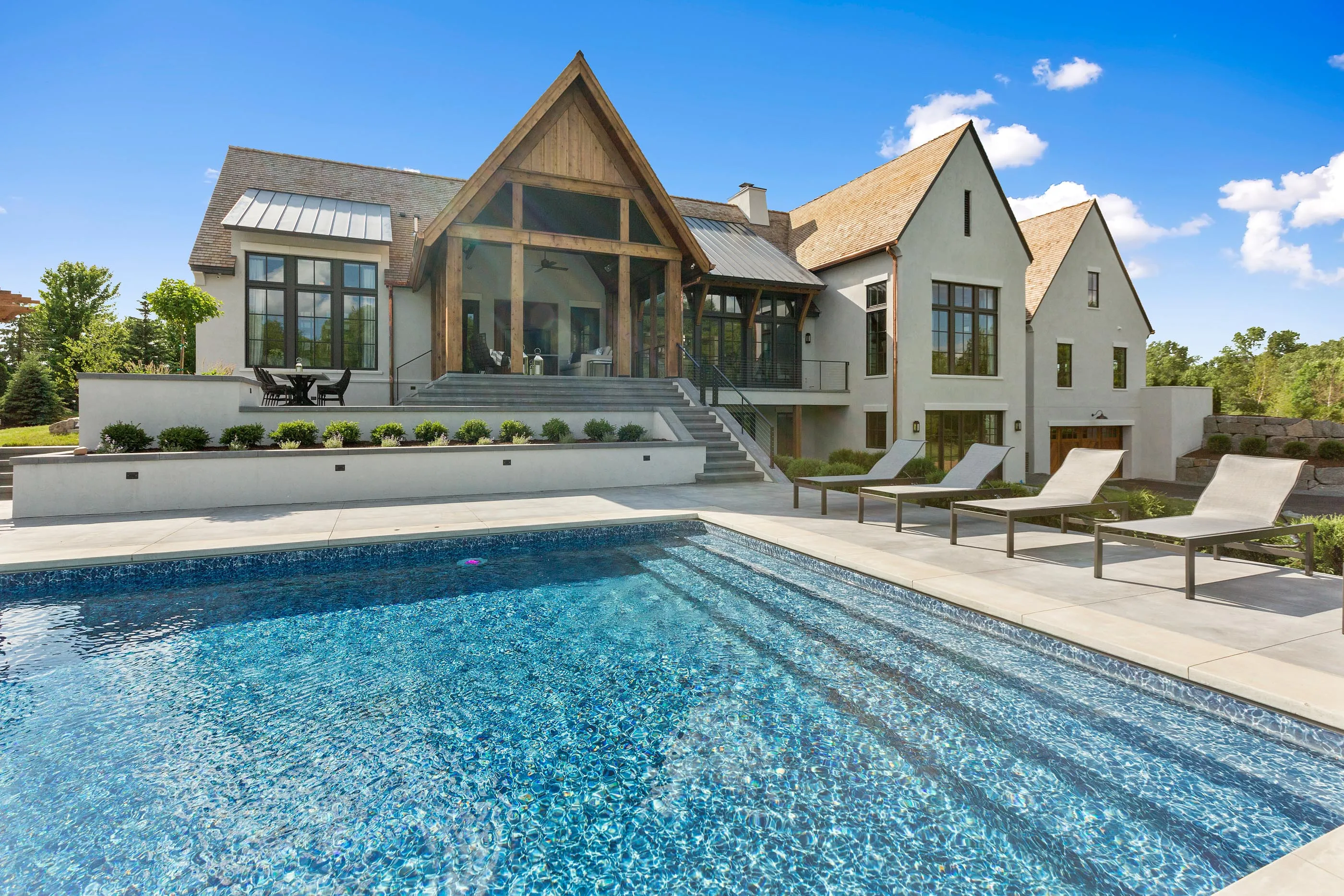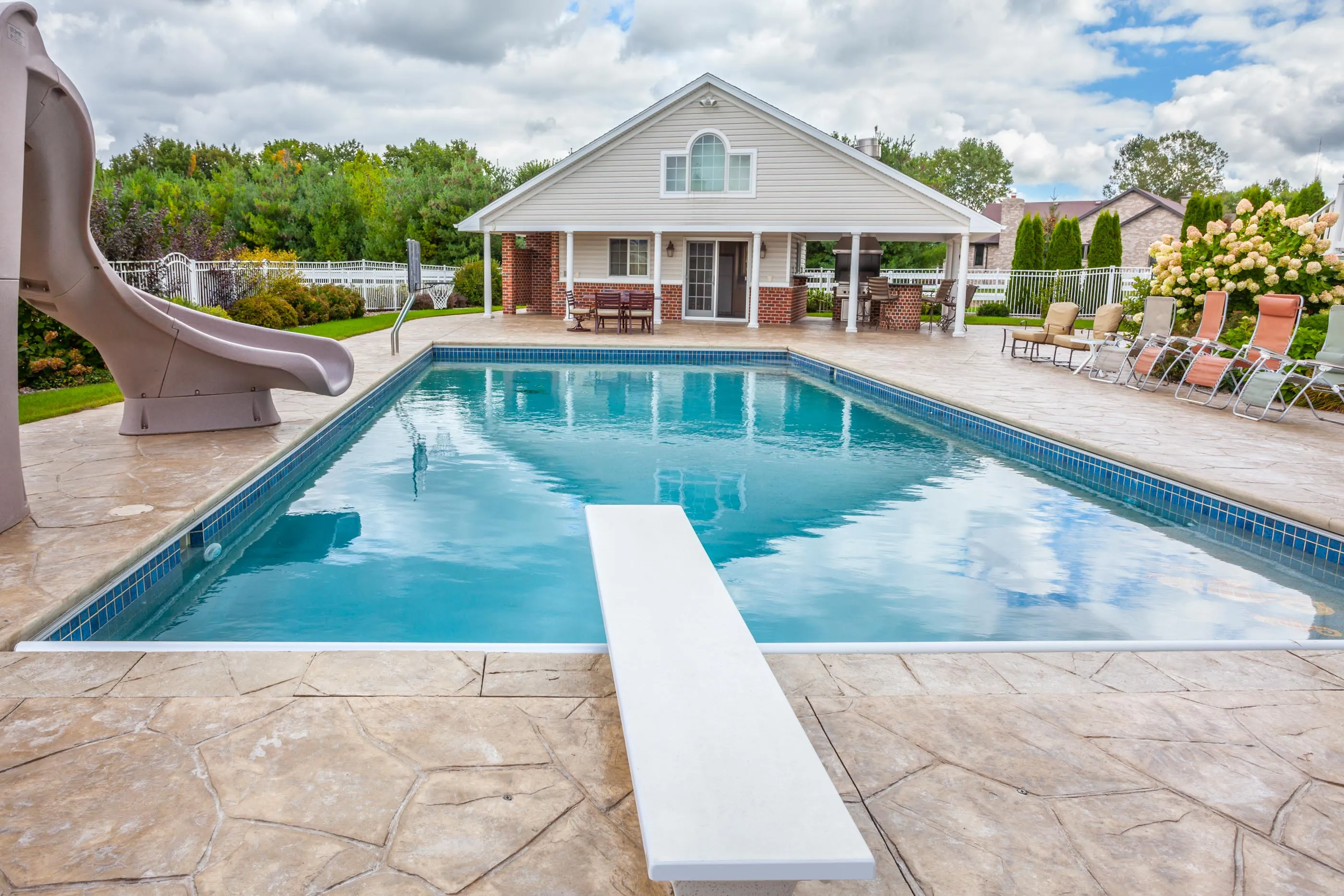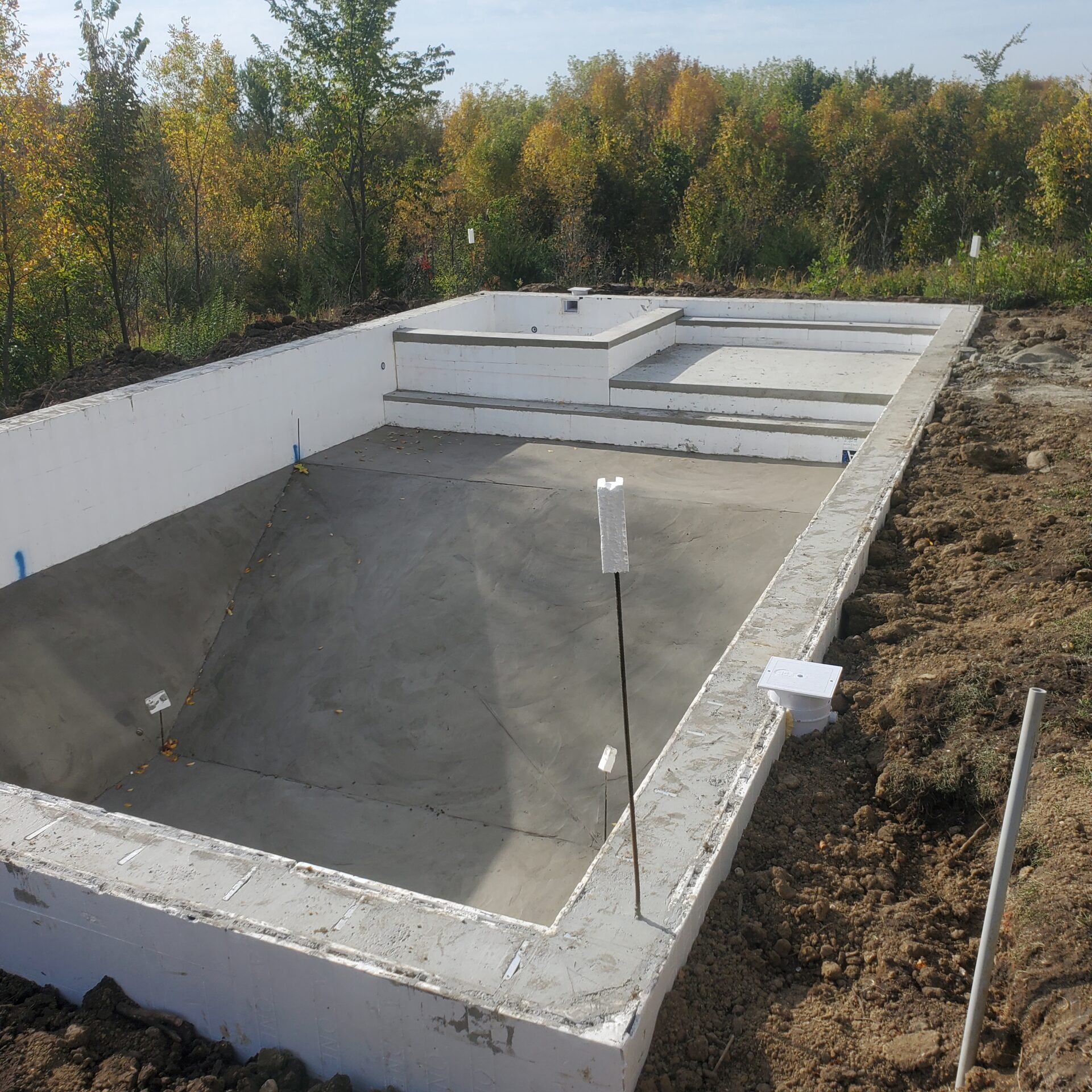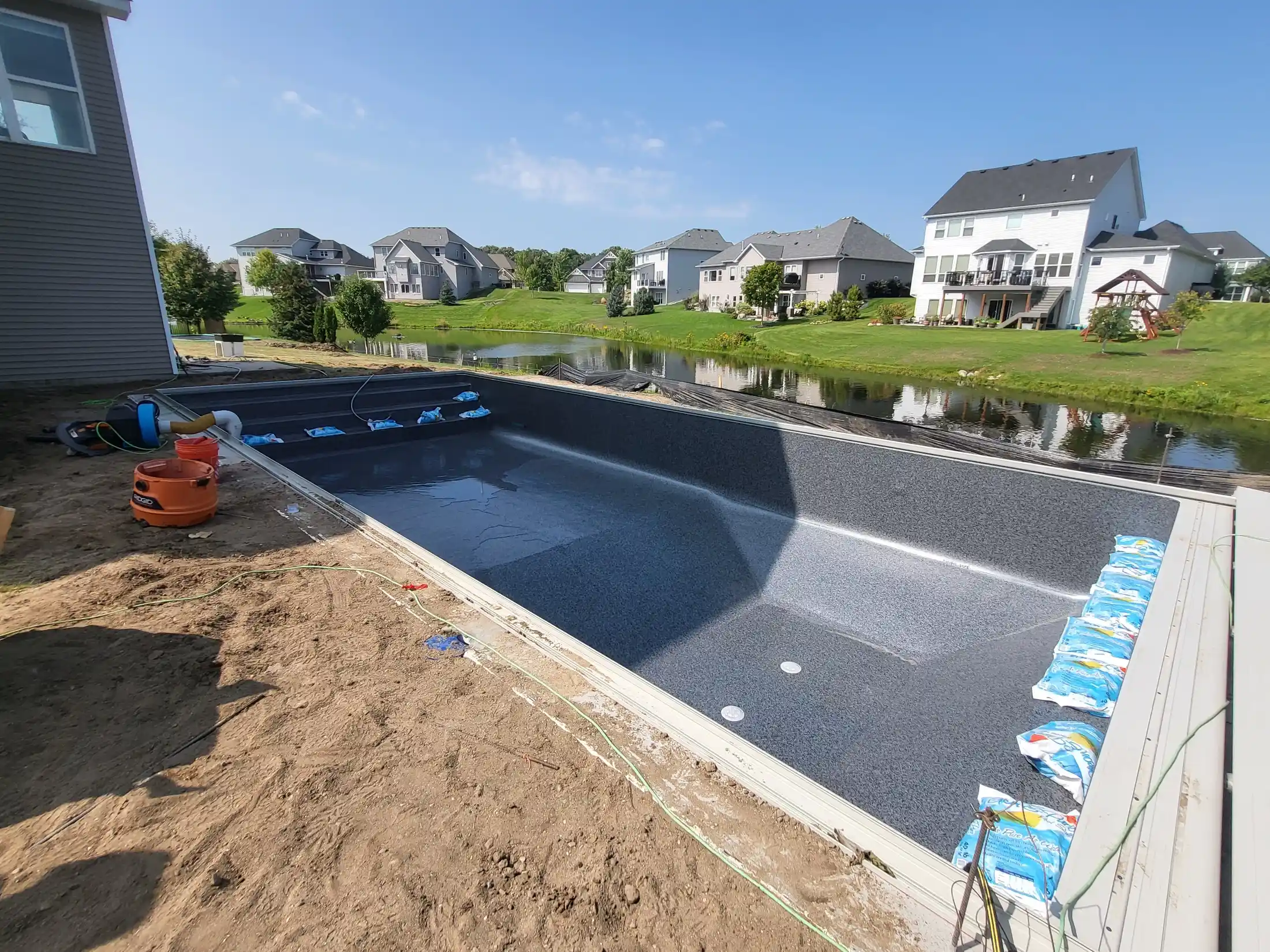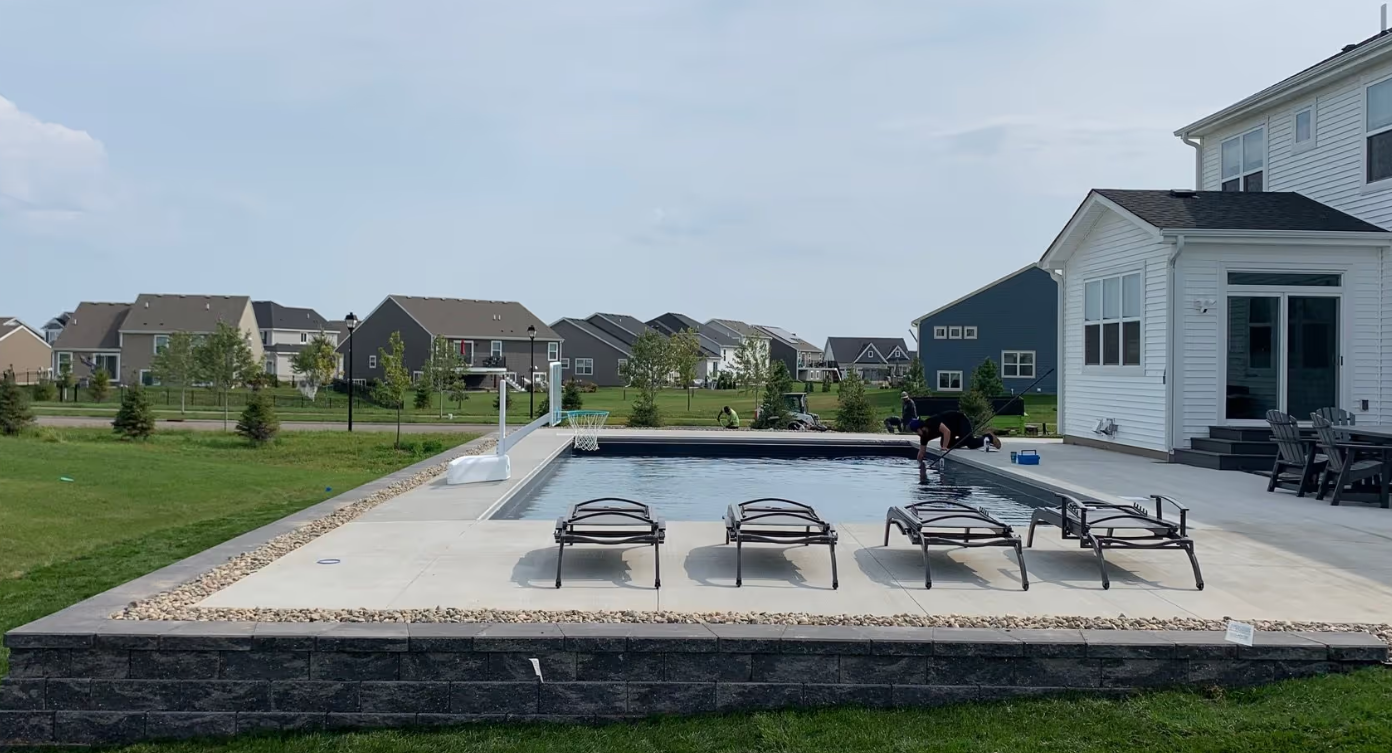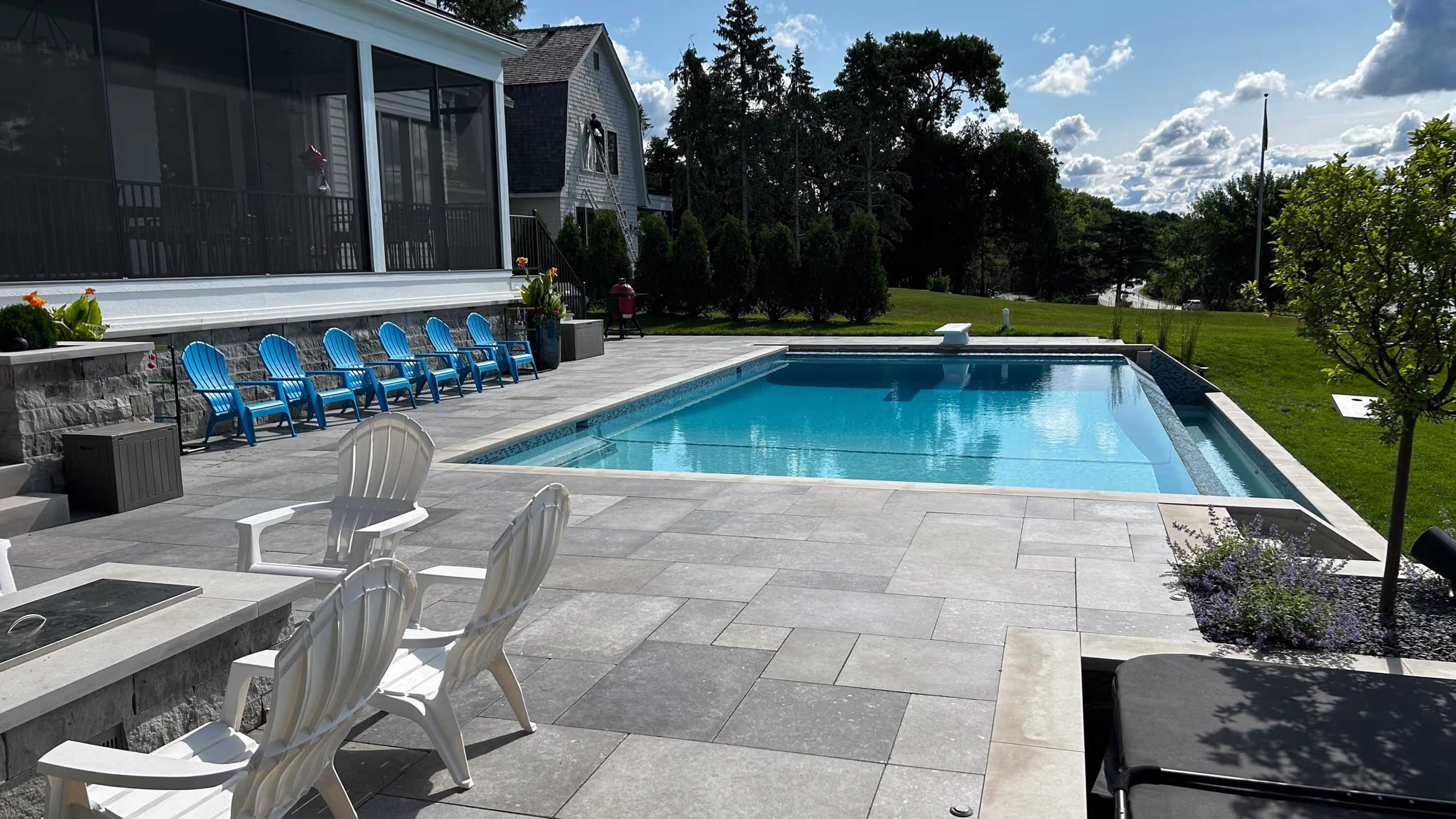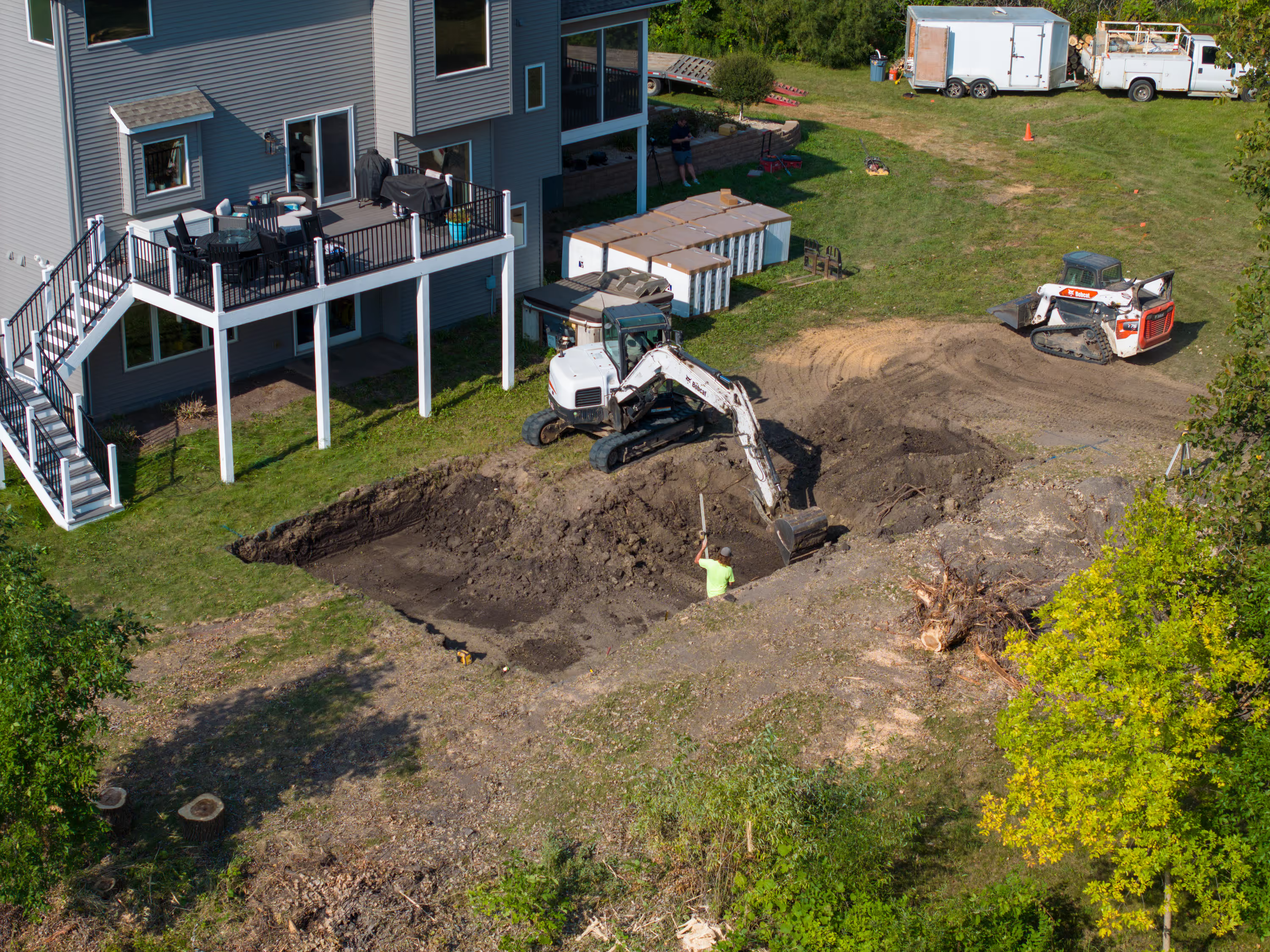You've started researching inground swimming pools for your Minnesota backyard, and you've probably experienced some sticker shock. Quality pool installations typically range from $90,000 to $150,000+—a substantial investment that makes many homeowners pause and ask: "What exactly am I paying for? Why are pools so expensive?"
It's a fair question. After all, you're essentially creating a hole in the ground, lining it, and filling it with water. How complicated can it really be?
The truth is, building a quality inground swimming pool that will provide decades of reliable enjoyment involves far more complexity, expertise, materials, labor, and engineering than most people realize. Every component requires specialized knowledge, every step involves potential challenges, and every shortcut taken during construction inevitably results in expensive problems down the road.
This comprehensive guide breaks down exactly where your investment goes when you build a quality inground pool. You'll understand not just what makes pools expensive, but more importantly, why investing in quality construction from the beginning saves you money and frustration over the pool's lifetime.
The Big Picture: What You're Really Buying
Before diving into specific cost components, let's establish what you're actually purchasing when you invest $90,000-$150,000 in an inground pool:
You're buying:
- A permanent structure that becomes part of your property for 30-50+ years
- Engineering and construction expertise to build that structure correctly in Minnesota's challenging climate
- Premium materials and equipment that will operate reliably for decades
- Professional labor from skilled tradespeople across multiple specialties
- Risk mitigation through proper permits, insurance, and warranties
- Increased property value (typically 5-10% home value increase)
- Decades of family memories and daily enjoyment
You're NOT buying:
- A product that can be mass-produced in a factory
- Something that can be installed by general handymen
- A temporary or easily movable recreation option
- A simple consumer product with standardized pricing
Every inground pool is a custom construction project that must be engineered for your specific property, built to your local codes, and designed to withstand Minnesota's extreme climate variations.
Cost Component #1: Site Preparation and Excavation ($8,000-$20,000+)
Before any pool structure can be built, your yard must be properly prepared—and this is far more complex than simply digging a hole.
Initial Site Assessment and Engineering
What's involved:
- Topographical survey of your property
- Soil analysis to determine composition and stability
- Underground utility location and marking (gas, electric, water, sewer, fiber optic, etc.)
- Drainage evaluation and planning
- Access assessment for equipment
- Engineering calculations for structural requirements
Why it costs money:
- Professional surveyors and engineers charge $800-$2,500 for comprehensive site analysis
- Each property presents unique challenges requiring expert evaluation
- Mistakes at this stage create expensive problems during construction
- Proper planning prevents costly surprises mid-project
Excavation
What's involved:
- Digging pool cavity to precise depths and dimensions
- Removing 150-300+ cubic yards of soil (depending on pool size)
- Grading and leveling the pool floor
- Creating proper slopes for drainage
- Removing rocks, roots, and obstacles
Why it costs money:
- Large excavation equipment rental: $2,000-$5,000
- Skilled operators: $75-$150 per hour
- Typical excavation takes 1-3 days depending on site conditions
- Rocky soil, high water table, or difficult access increases costs significantly
Soil Removal and Disposal
The challenge: You can't just leave 200+ cubic yards of excavated soil in your yard.
Options and costs:
- Hauling away: $500-$3,000+ depending on distance to disposal site and quantity
- Grading on-site: Possible only if you have adequate space and proper grading plan
- Fill dirt for low areas: Sometimes excavated soil can be used elsewhere on property
Why it's expensive:
- Dump trucks and hauling cost $100-$150 per load
- 15-25+ truckloads for typical pool excavation
- Disposal fees at landfills or fill sites
- Labor to load and transport
Challenging Site Conditions
Some properties present extraordinary challenges that dramatically increase excavation costs:
Rock removal:
- Solid bedrock requires specialized equipment or blasting
- Can add $5,000-$20,000+ to excavation costs
- Not always visible during initial assessment
High water table:
- Dewatering systems needed during construction
- Special drainage solutions required
- May require sump pump installation
- Adds $3,000-$10,000 to project
Difficult access:
- If large equipment can't reach backyard, hand digging may be necessary
- Small equipment takes much longer
- Can double or triple excavation costs
Slope/grade challenges:
- Retaining walls may be needed
- Additional engineering required
- Extra grading and stabilization
- Can add $5,000-$25,000+ depending on severity
Tree removal:
- Large trees near pool site may need removal
- Root systems must be completely extracted
- Professional tree removal: $500-$3,000+ per large tree
Proper Base Preparation
What's involved:
- Creating perfectly level, properly compacted base for pool structure
- Installing drainage systems beneath pool
- Laying gravel or stone base
- Precise elevation and grade work
Why it matters:
- Improper base causes settling, cracking, and structural failure
- Can't be fixed after pool is built without extremely expensive reconstruction
- Requires specialized skills and equipment
Cost: $2,000-$5,000 for proper base preparation
Cost Component #2: Pool Structure and Shell ($25,000-$60,000+)
The pool structure itself—the actual container that will hold water—represents one of the largest cost components. Quality and construction method dramatically affect both initial cost and long-term value.
Construction Methods: ICF vs. Steel Wall vs. Concrete
ICF (Insulated Concrete Form) Construction - What Plan Pools Specializes In:
What it is:
- Foam blocks create forms for reinforced concrete walls
- Rebar reinforcement within concrete
- Insulation remains in place permanently on both sides of concrete
- Superior structural integrity and energy efficiency
Cost: $30,000-$50,000 for pool structure (
higher initial cost but superior long-term value)
Why it costs more initially:
- Premium materials (ICF blocks, extensive rebar, high-quality concrete)
- More labor-intensive installation requiring specialized skills
- Requires experienced crews trained in ICF methodology
- Higher material costs than steel wall construction
Why it saves money long-term:
- 60% lower heating costs compared to steel wall pools
- Superior durability—lifetime structural warranty
- Better soil compaction leads to longer-lasting decks and hardscapes
- No rust, corrosion, or deterioration
- Complete customization without kit limitations
- Deeper pool options
- Extended swimming season (open earlier, close later)
What you're paying for:
- Engineering and design specific to your site
- Premium ICF materials designed for pool applications
- Extensive rebar reinforcement (hundreds of pounds)
- Multiple concrete pours with proper curing time
- Skilled labor from experienced ICF specialists
- Superior insulation that remains effective for decades
Steel Wall Construction - Most Common Alternative:
What it is:
- Prefabricated steel panel walls assembled on-site
- Typically vinyl liner inside
- Sand or vermiculite behind walls
- Standardized dimensions from kit
Cost: $15,000-$30,000 for pool structure (lower initial cost but higher lifetime costs)
Why it costs less initially:
- Mass-produced standardized components
- Faster installation (less labor)
- Less specialized skill required
- Pre-engineered kit system
Why it costs more long-term:
- Higher heating costs (steel conducts heat away from water)
- Rust and corrosion issues, especially with salt water systems
- Poor soil compaction leads to deck settling and cracking
- Limited customization options
- Shallower maximum depth
- Shorter lifespan before major repairs needed
- More frequent equipment failures
Poured Concrete (Gunite/Shotcrete) Construction:
What it is:
- Rebar framework sprayed with concrete
- Typically plastered interior finish
- Highly customizable
Cost: $35,000-$70,000+ for pool structure (highest initial cost)
Why it's expensive:
- Completely custom construction
- Requires specialized equipment and crews
- Multiple-step process with curing time between steps
- Expensive interior finishes (plaster, pebble, tile)
Considerations:
- Beautiful aesthetic options
- Complete design flexibility
- Higher maintenance requirements
- Plaster resurface needed every 7-12 years ($5,000-$10,000+)
The Vinyl Liner
For ICF and steel wall pools, the vinyl liner is what actually holds the water:
What's included:
- Custom-manufactured liner precisely fitted to your pool dimensions
- Heavy-duty vinyl (20-30 mil thickness)
- Pattern/color selection
- Professional installation with proper stretching and sealing
Cost: $3,000-$6,000 for quality liner
Why it costs this much:
- Custom manufacturing for your exact pool shape and size
- Premium vinyl materials that resist UV damage and chemicals
- Specialized skills required for proper installation
- Poor installation causes wrinkles, leaks, and premature failure
Long-term consideration:
- Liners last 8-12 years with proper maintenance
- Replacement cost: $4,000-$8,000
- Budget $400-$700 annually for eventual liner replacement
Structural Reinforcement and Waterproofing
What's involved:
- Extensive rebar grid for concrete pools
- Proper waterproofing membranes or coatings
- Expansion joints where necessary
- Proper sealing at all penetrations (lights, returns, drains)
Why it's expensive:
- Materials alone: $2,000-$5,000
- Skilled labor to install properly
- Can't be inspected or repaired after construction without major expense
- Critical for preventing leaks and structural failure
Cost Component #3: Plumbing and Circulation System ($8,000-$15,000)
Water must constantly circulate through filtration, heating, and chemical treatment systems—requiring extensive plumbing throughout and around the pool.
In-Pool Plumbing Components
What's installed:
- Main drains (typically 2 for safety)
- Multiple return jets strategically positioned
- Skimmers (surface water collection)
- Suction ports for automatic cleaners
- All connections sealed and waterproofed
Materials:
- PVC pipes (hundreds of feet)
- Valves, fittings, and connections
- Drain covers and safety components
Cost: $2,000-$4,000 for in-pool plumbing
Why it's expensive:
- Must be installed before pool structure is completed
- Can't be easily accessed or repaired after construction
- Requires precise placement and secure connections
- Any leaks after construction require excavation to repair
Equipment Pad Plumbing
What's installed:
- Underground pipes from pool to equipment area (50-100+ feet)
- Proper trenching and pipe burial
- Multiple lines for different functions
- Drainage for equipment area
Cost: $2,000-$3,000
Why it costs money:
- Trenching and burial requires excavation
- Multiple pipe runs for supply and return
- Must navigate around existing landscaping, utilities, etc.
- Proper pitch and drainage critical for system function
Filtration System
Components:
- Large sand or cartridge filter
- Multi-port valve
- Pressure gauge and sight glass
- Proper mounting and connections
Cost: $1,500-$3,500 depending on pool size and filter type
Quality matters:
- Undersized filters require more frequent cleaning and provide poor water quality
- Cheap filters fail prematurely and cost more to replace
- Proper sizing critical for system efficiency
Circulation Pump
What you're buying:
- Variable-speed pump (energy efficient and quiet)
- Proper horsepower for your pool size
- Professional installation with electrical connections
Cost: $1,200-$2,500 for quality variable-speed pump
Why invest in quality:
- Variable-speed pumps save $400-$800 annually in electricity costs
- Quieter operation
- Longer lifespan (8-10 years vs. 4-6 for cheap pumps)
- Better water circulation and filtration
Heater (Optional but Common in Minnesota)
Options:
- Gas heater: $2,500-$4,500 installed
- Heat pump: $3,500-$6,000 installed
- Solar heating: $3,000-$8,000 installed
Why Minnesota pool owners often include heating:
Cost Component #4: Electrical Work ($3,000-$8,000)
Pools require significant electrical infrastructure for pumps, heaters, lights, and automation systems.
Power Requirements
What's needed:
- Dedicated circuits for pool equipment (typically 240V)
- Separate circuits for lights and accessories
- GFCI protection for all pool circuits
- Proper amperage for all equipment
Why it's expensive:
- Often requires electrical panel upgrades ($1,500-$3,000)
- Long wire runs from house to pool equipment
- Underground conduit installation
- Specialized pool electrical knowledge required
Professional Electrician Requirements
Code requirements:
- All pool electrical must be performed by licensed electrician
- Must meet strict NEC (National Electrical Code) pool requirements
- Subject to inspection and approval
- Bonding of all metal components within 5 feet of pool
Cost: $2,000-$5,000 for professional pool electrical work
Why DIY isn't an option:
- Requires licensed electrician for code compliance
- Improper electrical creates serious safety hazards
- Insurance requires professional installation
- Permits won't be approved without licensed electrician
Pool Lighting
Standard lighting:
- 2-3 LED pool lights: $800-$1,500 installed
- Transformer and controls
- Color-changing options available
Enhanced lighting options:
- Landscape lighting around pool: $1,000-$3,000
- Deck lighting: $500-$1,500
- Underwater accent lights: $400-$800 each
Why invest in quality lighting:
- Safety—proper illumination prevents accidents
- Aesthetics—beautiful evening ambiance
- LED technology lasts 10+ years
- Energy efficient operation
Cost Component #5: Decking and Hardscape ($15,000-$40,000+)
The area around your pool is just as important as the pool itself—this is where you'll spend most of your pool time.
Concrete Decking
Standard poured concrete:
- Cost: $8-$15 per square foot
- 400-800 square feet typical: $3,200-$12,000
- Brushed, broom, or light texture finish
- Functional but basic aesthetic
Stamped concrete:
- Cost: $12-$20 per square foot
- Replicates stone, brick, or tile patterns
- More attractive than standard concrete
- Good value for appearance improvement
Colored/stained concrete:
- Cost: $10-$18 per square foot
- Custom color options
- Can be combined with stamping
- More interesting visual appeal
Why quality decking costs more:
- Proper base preparation (compaction critical)
- Adequate thickness (5-6 inches minimum)
- Reinforcement (rebar or fiber mesh)
- Proper pitch for drainage
- Skilled finishers for attractive results
- Sealing and protection
Premium Decking Options
Pavers:
- Cost: $15-$30+ per square foot installed
- Natural stone appearance
- Easy to repair individual pavers
- Beautiful, high-end aesthetic
- Better for Minnesota freeze-thaw (can shift without cracking)
Natural stone:
- Cost: $20-$40+ per square foot installed
- Travertine, bluestone, flagstone options
- Premium appearance
- Excellent durability
- Cool underfoot (important for hot days)
Why premium decking costs more:
- Expensive materials
- Requires proper base and sand layer
- Labor-intensive installation
- Cutting and fitting each piece
- Sealing and maintenance requirements
Hardscape Extent
Minimum functional deck:
- 3-4 foot width around pool perimeter
- Provides walking space and pool access
- Cost: $6,000-$12,000
Recommended deck:
- 4-8 foot width with entertainment areas
- Space for furniture and gathering
- Cost: $12,000-$25,000
Luxury outdoor living:
- Extended patios, outdoor kitchens, fire features
- Comprehensive landscape integration
- Multiple seating and entertainment zones
- Cost: $25,000-$75,000+
Why Adequate Decking Matters
Functional requirements:
- Proper drainage away from pool
- Non-slip surface (critical for safety)
- Adequate width for pool maintenance access
- Space for lounging and entertaining
Long-term considerations:
Cost Component #6: Water Chemistry and Sanitization ($2,500-$6,000)
Keeping pool water clean, clear, and safe requires sophisticated chemical management systems.
Salt Water Chlorination System (Recommended)
What it is:
- Salt cell generates chlorine from dissolved salt
- Automated chlorine production
- Gentler on skin, eyes, and swimwear
- Lower ongoing chemical costs
Cost: $1,500-$2,500 installed
Why it's worth the investment:
- More consistent water chemistry
- Less daily maintenance
- No harsh chlorine smell
- Better swimming experience
- Long-term cost savings on chemicals
Considerations:
Chemical Feeding and Automation
Basic system:
- Manual testing and chemical addition
- Floating chlorine dispensers
- Cost: Minimal initial, but time-intensive ongoing
Automated system:
- Automatic chemical monitoring and dosing
- pH control
- ORP (oxidation-reduction potential) monitoring
- Cost: $1,500-$3,500
Why automation matters:
- Consistent water chemistry
- Reduces time spent on maintenance
- Prevents algae growth and water quality issues
- Protects equipment from chemical imbalances
Cost Component #7: Safety Equipment and Covers ($3,000-$8,000)
Minnesota requires specific safety measures, and proper pool covers provide crucial protection and energy savings.
Automatic Safety Cover
What it is:
- Motorized cover that spans entire pool
- Meets ASTM safety standards to support weight
- Tracks mounted on deck
- Key switch operation
Cost: $3,500-$7,000 installed
Why it's essential in Minnesota:
- Critical safety feature (especially with children)
- Significantly reduces heating costs by preventing heat loss
- Keeps debris out of pool
- Reduces water evaporation
- Required by many cities and insurance companies
Long-term costs:
- Cover fabric replacement every 7-10 years: $2,500-$5,000
- Motor/mechanism repairs: $300-$800 over time
Fencing Requirements
What's typically required:
- 4-6 foot fence completely surrounding pool area
- Self-closing, self-latching gates
- Non-climbable design
- Separate from house structure
Cost: $2,000-$8,000+ depending on materials and size
Common options:
- Chain link: $2,000-$3,500 (functional but not attractive)
- Vinyl: $3,500-$6,000 (good balance of cost and appearance)
- Wrought iron/aluminum: $4,500-$8,000 (attractive but expensive)
- Glass panels: $8,000-$15,000+ (modern, unobstructed view)
Why it's required:
- City ordinances mandate pool fencing
- Insurance companies require it
- Critical safety feature preventing child drowning
- "Attractive nuisance" liability protection
Cost Component #8: Permits, Inspections, and Professional Fees ($2,000-$5,000)
Legal compliance and professional oversight ensure your pool is built safely and correctly.
Building Permits
What's required:
- Pool construction permit
- Electrical permit
- Plumbing permit (sometimes)
- Fence permit
Cost: $500-$1,500 depending on municipality
Why it matters:
- Legally required in all Minnesota cities
- Ensures code compliance
- Required for insurance coverage
- Protects your investment
Inspections
Required inspections:
- Pre-pour inspection (plumbing and electrical before concrete)
- Structural inspection
- Electrical inspection
- Final inspection
Cost: Included in permit fees typically
Why inspections protect you:
- Verify code compliance
- Identify problems before they're buried/hidden
- Create official record of proper construction
- Required for occupancy and insurance
Engineering and Design
Professional services:
Cost: $1,000-$3,000 (often included in quality contractors' pricing)
Value provided:
- Ensures structural integrity
- Optimizes pool placement and design
- Visualize final result before construction
- Prevents costly design mistakes
Cost Component #9: Professional Labor and Project Management ($15,000-$30,000)
Perhaps the most undervalued component: the expertise, skill, and coordination required to successfully build your pool.
Specialized Tradespeople Required
Pool construction involves:
- Excavation operators
- Concrete specialists
- Plumbers
- Electricians
- Equipment technicians
- Deck/hardscape installers
- Landscapers
Each requires:
- Years of training and experience
- Specialized tools and equipment
- Insurance and licensing
- Coordination with other trades
Why labor is expensive:
- Skilled tradespeople earn $40-$100+ per hour
- 300-600+ total labor hours for typical pool
- Specialized pool construction skills command premium wages
- Quality contractors maintain full-time, experienced crews
Project Management
What's involved:
- Coordinating multiple trades and subcontractors
- Scheduling equipment and materials
- Managing permits and inspections
- Problem-solving unexpected challenges
- Communication with homeowner
- Quality control and oversight
Why it's valuable:
- Prevents costly delays and mistakes
- Ensures proper sequencing of work
- Manages inevitable challenges and changes
- Maintains quality standards throughout project
- Plan Pools' experienced project management keeps projects on time and on budget
Hidden costs of poor project management:
- Delayed completion (you lose swimming season)
- Mistakes requiring expensive repairs
- Failed inspections requiring rework
- Conflict between trades causing quality issues
Cost Component #10: Overhead, Insurance, and Warranties ($8,000-$15,000)
Quality contractors carry significant overhead costs that protect you and ensure long-term success.
Business Overhead
Operating costs contractors must cover:
- Office space and administrative staff
- Vehicles and equipment
- Tools and maintenance
- Marketing and lead generation
- Technology and software
- Training and education
Typical overhead: 20-30% of project cost
Why you want contractors with proper overhead:
- Indicates established, stable business
- Ensures adequate resources and support
- Provides continuity and accountability
- Professional operations and communication
Insurance Requirements
Quality contractors carry:
- General liability insurance ($1-2 million)
- Workers' compensation insurance
- Equipment and vehicle insurance
- Professional liability insurance
Annual cost: $15,000-$40,000+ depending on company size
Why it protects you:
- Coverage if workers injured on your property
- Protection if pool damages neighboring property
- Financial security if problems arise
- Required by most homeowners' insurance companies
Warranties and Guarantees
What quality contractors provide:
- Structural warranty (lifetime for ICF construction)
- Equipment warranties (1-3 years typical)
- Workmanship warranty (1-2 years)
- Liner warranty (manufacturer warranty plus installation guarantee)
Value of warranties:
- Peace of mind
- Recourse if problems develop
- Demonstrates contractor confidence in work
- Reduces long-term financial risk
Cost: Built into pricing, but represents 3-5% of project cost
Why "Cheap" Pools Cost More in the Long Run
Now that you understand what goes into a quality pool, let's examine why cutting corners initially inevitably costs more:
The $60,000 Pool That Costs $100,000
Scenario: Homeowner chooses cheap contractor to save $30,000-$40,000 upfront
What gets cut:
- Steel wall construction instead of ICF
- Minimal decking (just 3 feet)
- Cheap pump and filter
- No automation
- Minimal safety features
- No professional project management
5-Year costs:
- Higher heating costs: +$2,000-$3,000 ($400-$600 annually x 5 years)
- More chemical expenses: +$1,000 (manual system inefficiency)
- Equipment failures and repairs: +$3,000-$5,000
- Deck cracking/settling repairs: +$5,000-$10,000 (poor soil compaction)
- Increased maintenance time: +$2,500 (50+ hours annually at $50/hour value)
- Liner replacement early due to poor installation: +$5,000
Total 5-year additional costs: $18,500-$26,500
10-Year costs add:
- Major structural repairs: +$10,000-$25,000
- Complete deck replacement: +$15,000-$30,000
- Equipment replacements: +$5,000-$8,000
Total 10-year additional costs: $48,500-$89,500+
The "cheap" $60,000 pool ultimately costs $108,500-$149,500 over 10 years—more than a quality ICF pool would have cost initially, plus years of frustration and problems.
Why Quality Construction Pays for Itself
Plan Pools ICF construction delivers:
Energy savings:
- 60% lower heating costs: $400-$600 annually saved
- 10-year savings: $4,000-$6,000
Reduced maintenance:
- Better equipment requires less attention
- Automated systems reduce time investment
- Fewer repairs and service calls
- 10-year value: $5,000-$8,000
Longer lifespan:
- ICF structure lasts 50+ years vs. 20-30 for steel wall
- Superior deck longevity (proper compaction)
- Higher-quality equipment lasts longer
- Fewer major repairs needed
Higher property value:
- Quality pools add 5-10% to home value
- Cheap pools may add little or hurt value (if visible problems)
- Difference: $20,000-$40,000 on $400,000 home
How to Maximize Value When Building a Pool
Understanding costs helps you make smart decisions that deliver maximum value:
Invest in the Foundation
Don't compromise on:
- Site preparation and proper excavation
- Pool structure quality (ICF over steel wall)
- Proper plumbing and electrical
- Adequate decking with good base preparation
These components can't be easily upgraded later and determine your pool's long-term performance.
Smart Areas for Budget Flexibility
Where you can adjust without compromising quality:
- Deck size (start smaller, expand later)
- Premium decking materials (start with concrete, upgrade to pavers later)
- Landscaping extent (phase implementation over time)
- Water features and enhancements (add later if desired)
- Outdoor kitchens or structures (future additions)
These elements can be added or upgraded without affecting core pool functionality.
Never Compromise on Safety
Essential safety investments:
- Quality automated safety cover
- Proper fencing meeting all requirements
- Adequate lighting
- GFCI protection and proper electrical
Safety features protect lives and liability—they're never optional.
Choose Quality Over Features
Better approach:
- Smaller pool with superior construction
- Standard features with quality equipment
- Proper build that lasts decades
Worse approach:
- Larger pool with cheap construction
- Many features with cheap components
- Saves money initially but creates problems
Rule of thumb: Build the best quality pool you can afford, even if it means simpler design or fewer accessories. You can always add features later, but you can't easily fix cheap construction.
Working with Plan Pools: What's Included in Our Pricing
When you invest in a Plan Pools installation, here's what your $90,000-$125,000 investment includes:
Premium Construction
ICF (Insulated Concrete Form) pool structure with lifetime structural warranty✓ Custom vinyl liner manufactured for your exact pool dimensions✓ Complete plumbing system with quality components throughout✓ Professional electrical work by licensed electricians✓ Comprehensive site preparation with proper excavation and base
Superior Equipment
Best-in-class salt water chlorination system for gentle, effective sanitization✓ Variable-speed pump for energy efficiency and quiet operation✓ Quality filtration system properly sized for your pool✓ Automated safety cover meeting ASTM safety standards✓ Premium LED lighting for safety and ambiance✓ Professional automation system for easy control and monitoring
Quality Decking
Professional concrete decking around pool perimeter✓ Proper base preparation ensuring long-lasting hardscape✓ Non-slip finish for safety✓ Adequate drainage protecting pool and surrounding area
Professional Services
Comprehensive 3D design showing exactly what your finished pool will look like✓ All permits and inspections handled by our experienced team✓ Professional project management keeping your project on time and on budget✓ Expert installation by our full-time, experienced crews (never subcontractors)✓ Comprehensive warranty coverage protecting your investment
What Makes Plan Pools Different
We include the premium features that other contractors charge extra for:
- ICF construction (60% energy savings over steel wall)
- Best salt water system (no cheap alternatives)
- Quality automation (no manual systems)
- Professional safety cover (no cheap covers)
- Lifetime structural warranty (not 1-3 years)
We eliminate surprise costs:
- Fixed pricing before construction begins
- No change orders or "gotcha" upgrades
- Transparent itemization of all costs
- Clear communication throughout project
We build for the long term:
- We install the same systems we have in our own backyards
- We use construction methods proven in Minnesota's climate
- We stand behind our work with comprehensive warranties
- Our hundreds of satisfied customers throughout the Twin Cities demonstrate our commitment to excellence
Conclusion: Understanding Value Beyond Price
Yes, quality inground swimming pools are expensive—typically $90,000-$150,000 for installations that will truly deliver decades of reliable enjoyment. But when you understand what you're actually purchasing, the investment makes sense:
You're buying:
- Permanent property improvement increasing home value 5-10%
- Premium construction withstanding Minnesota's challenging climate
- Energy-efficient equipment saving hundreds annually in operating costs
- Professional expertise preventing expensive problems
- Decades of family memories and daily enjoyment
- Superior durability requiring fewer repairs over lifetime
You're NOT buying:
- A mass-produced consumer product
- Something that can be easily replaced or upgraded
- A short-term amenity that will need rebuilding in 10-15 years
The difference between a $60,000 cheap pool and a $110,000 quality pool isn't just $50,000—it's the difference between frustration and enjoyment, between constant repairs and reliable operation, between a liability and an asset.
Ready to Invest in Quality?
At Plan Pools, we believe in transparent pricing and honest explanations of where your investment goes. We build pools the right way—using superior ICF construction, installing the best equipment, providing comprehensive warranties, and delivering the professional expertise that ensures your pool provides decades of trouble-free enjoyment.
Schedule your consultation today and discover why hundreds of Minnesota families have trusted Plan Pools to build their backyard oasis. We'll show you exactly what's included in our pricing, explain how our approach saves money over the pool's lifetime, and design the perfect pool for your property and budget.
Your backyard paradise is waiting. Let's build it right, together.
Related Resources:
